.png-1760698724.jpg)
Economic Shock
HOW WE GOT HERE AND WHAT TO DO NOW
The events of September 8 and 9, now etched into Nepal’s history as the Gen Z revolution, have unleashed a wave of political and economic shock whose reverberations continue to shape the national discourse. What began as a protest against corruption and the sudden government ban on social media platforms quickly transformed into a larger reckoning with entrenched misrule, systemic failures and a generation’s demand for accountability. In the aftermath, businesses burned, public property was destroyed and confidence was deeply shaken. Yet, within the turbulence lies an opportunity, one that has prompted voices across sectors to reflect on lessons, priorities and the way forward.
The responses gathered here from leaders, entrepreneurs, academics, policymakers and thinkers converge on a shared recognition: corruption is not only a moral failing but also the root of Nepal’s economic fragility. It is an invisible tax on honest work, an obstacle to innovation and a force that robs citizens of both trust and opportunity. As several contributors point out, the cost of corruption is measured not just in wasted resources but also in the lost potential of an entire generation that feels excluded from meaningful participation in its own country’s progress.
But amid the grief and uncertainty, optimism has also emerged. The resilience of Nepal’s youth – digitally connected, globally aware and unwilling to remain silent – has renewed hope. Business leaders stress the need for radical transparency, responsible entrepreneurship and rebuilding trust with communities. Economists and policymakers emphasise fiscal discipline, reconstruction and the creation of jobs that can anchor young people’s aspirations at home. Innovators and entrepreneurs highlight the urgency of digital transformation, logistics reform and support for small businesses as essential tools to restore confidence and competitiveness.
Many responses underline the importance of immediate measures such as temporary tax relief, swift insurance settlements and easing regulatory bottlenecks, to buy time for recovery. Others point toward long-term reforms like diversifying exports, modernising education, investing in infrastructure, digitizing systems and empowering inclusive governance. Crucially, there is consensus that no single actor can drive change alone. The state, private sector and civil society must act in partnership, guided by integrity and shared responsibility.
The Gen Z revolution has reminded Nepal that stability cannot be built on weak foundations. For businesses, the test lies not only in resilience but also in redefining their role as agents of positive change. For policymakers, it is about proving that leadership can be transparent, accountable and responsive. For citizens, it is about holding power to account and rejecting complicity in everyday corruption.
This moment of disruption, then, is also a moment of possibility. If the lessons are heeded, the crisis could become the catapult for Nepal’s resurgence.

Sukritya Khatiwada
CEO, Nepa Rudraksha
This economic shock is not sudden. It is the product of years of compromises where influence triumphed over merit and public wealth was treated as personal property. The result is what we see today: a nation rich in spirit and resources, yet forced to struggle under the weight of mismanagement and greed. The way forward begins with accountability at the top.
The protests we are witnessing today are not just about politics; they are the voice of a nation that refuses to be broken. Corruption is not only a moral failure, it is an assault on Nepal’s dignity. It robs us of opportunity, forces our brightest minds to leave, and tells ordinary citizens that their dreams do not matter.
This economic shock is not sudden. It is the product of years of compromises, where influence triumphed over merit and public wealth was treated as personal property. The result is what we see today: a nation rich in spirit and resources, yet forced to struggle under the weight of mismanagement and greed. The way forward begins with accountability at the top.
Without genuine responsibility from those entrusted with power, reforms will remain hollow promises. Transparent systems for taxation, procurement and governance must be implemented in ways that leave no room for manipulation. Technology can be a tool but courage from leadership is the true test.
Yet, laws and systems alone will not save us. Patriotism must live in action, not only in words. Every Nepali – citizens, businesses, leaders – must reject the easy excuse of ‘this is how things work’. Our love for our country must mean refusing to tolerate dishonesty, even in the smallest of ways.
Nepal is a sacred land, blessed with extraordinary human spirit, culture and natural wealth. We cannot allow corruption to define our story. The outrage in the streets today is proof that the heart of Nepal still beats strong. If we channel this moment into courage, unity and integrity, this crisis can become the turning point we will one day celebrate as the rebirth of a proud nation.
The cost of corruption is heavy but the reward of courage is a Nepal worthy of its people and its destiny.

Aditya Dugar
Director, Century Group of Companies
It is vital to remember that Nepal’s progress depends on unity of purpose. Leaders, bureaucrats, businesses and citizens alike must rise above personal interests and work collectively. The only way forward is together.
The events of September 9 will always be remembered in Nepali history as a major turning point. It marked not only a shift in the political landscape but also a call for deeper reforms across society. What happens hereafter lies entirely on the intent and actions of not just the policymakers but also bureaucrats, who play a crucial role in the daily functioning of the system and in translating vision into reality.
In my opinion, the leadership must prioritise the following: uprooting corruption from the very core of governance, developing long-term macroeconomic policies that foster sustainable and inclusive growth, and working in close partnership with the private sector to rebuild both the physical and economic infrastructure of Nepal. At the same time, the government should take on the role of a guardian – urgently establishing a hotline to connect directly with victims of the riots, while also acknowledging the views of citizens from all classes and backgrounds to restore trust and confidence. Equally important is ensuring transparency and accountability, so that promises made are actually delivered.
As for the business community, they must prepare for a turbulent year ahead in terms of business and growth. Caution should guide decisions on expansion, as stability is more critical than rapid gains. Yet, even during challenging times, every business house has a responsibility to contribute – whether through monetary donations, distributing essential goods, or active participation in community service. Beyond this, industry leaders should form internal committees to streamline such efforts and invite professionals from the international community to collaborate with both the government and local stakeholders in rebuilding the nation. A shared commitment to innovation, resilience and social responsibility will be key in navigating the road ahead.
It is vital to remember that Nepal’s progress depends on unity of purpose. Leaders, bureaucrats, businesses and citizens alike must rise above personal interests and work collectively. The only way forward is together.

Menuka Karki PhD
Economist and Visiting Faculty, Kathmandu University
Policymakers must change the narrative around wealth creation. Too often, businesses are unfairly generalised as corrupt, undermining their morale. Recognising their contributions to tax revenues, employment and growth will help provide both social respect and security for the business community.
The Gen Z revolution has underscored both the fragility and resilience of our economy. The initial shock of political instability and public unrest reminded us how quickly uncertainty can derail production and investment. To move forward, both the business community and policymakers must embrace a renewed partnership built on trust, respect and accountability.
For businesses, the lesson is clear: production cannot stall in the face of uncertainty. Instead, the focus should be on continuity, innovation and resilience. The interim government has signalled positive intent but the private sector must take the lead in reviving supply chains, restoring regular production and creating jobs. Equally important is for businesses to recognise their role in society – not just as profit-makers but as tax contributors, job creators and partners in reducing inequality. Corporate social responsibility and fair labour practices should be viewed not as obligations but as investments in long-term stability.
For policymakers, the immediate priority is restoring confidence. This requires a strong stance against lawlessness to ensure that disorder does not become normalised. At the same time,
policymakers must change the narrative around wealth creation. Too often, businesses are unfairly generalised as corrupt, undermining their morale. Recognising their contributions to tax revenues, employment and growth will help provide both social respect and security for the business community.
Concrete policy support is equally vital. Investment in public infrastructure – roads, electricity and logistics – must be accelerated to ensure businesses can operate without disruption, especially in the aftermath of natural calamities. Fiscal tools, such as concessional financing and progressive taxation, can simultaneously encourage production while addressing inequality. In the short term, measures to boost domestic demand, stabilise supply chains and ensure fair pricing – particularly during festive seasons – can create a multiplier effect across product and labour markets, benefiting households and firms alike.
Ultimately, the path forward lies in striking a balance: fostering wealth creation while ensuring inclusive growth. By protecting businesses, empowering consumers, and delivering predictable policy, Nepal can turn the Gen Z moment of uncertainty into a foundation for resilience and shared prosperity.

Hemanta Bhandari
Founder & Managing Director Nepal Eighth Wonder Media
Policymakers should focus on broadening the tax base by formalising the informal sector and making better use of revenue as well as international aid for recovery. Transparent and efficient allocation of these funds will be crucial to avoid repeating the cycle of corruption, and this will also create an optimistic environment for entrepreneurs to invest.
After the Gen Z revolution, Nepal stands at a crossroads of economic and political adjustment. Alongside the beginning of positive change, we are all expecting economic setbacks due to vandalism and property damage, which has hit the confidence of both the public and private sectors.
Having worked alongside the tourism industry, I can sense an immediate impact that might cause economic hurdles to the actors of this industry. As the festive season approaches and people take advantage of long holidays, this used to be a perfect time for the tourism industry to benefit. But the recent instability might make foreign visitors hesitant, which will ultimately affect businesses that rely heavily on seasonal tourist inflows. The way forward lies in strengthening domestic tourism. If we Nepalis feel safe and encouraged to travel, it will build confidence and send a signal to international tourists that Nepal still remains a peaceful and welcoming destination, as beautiful as before.
Another major challenge that I sense is the reconstruction of damaged private and public properties, which will require significant resources.
Policymakers should focus on broadening the tax base by formalising the informal sector and making better use of revenue as well as international aid for recovery. Transparent and efficient allocation of these funds will be crucial to avoid repeating the cycle of corruption, and this will also create an optimistic environment for entrepreneurs to invest.
Likewise, the creator economy that I am part of will be impacted as brands will hesitate to invest in campaigns during this upcoming festival season. We, as creators, must find new ways of collaboration and engagement that are less costly for businesses incurring losses, while also boosting our capacity to create.
However, this moment should not be seen as an ordinary setback but rather as the backward pull of a catapult that can launch Nepal toward greater stability and growth. In my opinion, the only way to ride out this wave of economic uncertainty is to have an effective partnership between the public and private sectors, building resilience in the economy.

Deepak Rauniar
CEO, Oorja World
The cost of corruption, is not only stolen money. It is stolen mobility. Stolen hope. Stolen reciprocity. That is what erupted on the streets.
The lesson for leaders and businesses is blunt: dismantle the closed loop. Make opportunity visible and let it flow to those who truly deserve it. Let contracts, credit and careers be decided by merit alone, not connections, and never bribe. Gen Z has shown what they will not accept.
The protests that shook Nepal last week were not sudden. They were years in the making. They just exploded on September 8 and 9. Nepal’s economy has long run on a closed loop. Over the last two decades, reinforced daily by the ruling class – whatever their party colours – the mantra was clear: contracts for the connected, jobs for the loyal, and migration as the safety valve. For those outside the circle, the message was brutal. Merit did not count. Education did not count. Effort did not count. Only proximity or a bribe did.
Yet a new generation was coming to its senses, raised in an environment where technology had leveled the field and shaped their upbringing with equal access to ideas, culture and competition. They grew up watching Prabal Gurung dress the New York Met Gala, coders in Bangalore, creators in Seoul. From Netflix to Kendrick Lamar, from Wimbledon to the NFL – everything was accessible, except opportunity at home.
Then came the betrayal of a generation. The people’s revolt against the old Raj Durbar had promised democracy and opportunity, but those promises were nowhere to be found. Instead, politics hardened into patronage. The elites prospered, while a generation was told to wait, to migrate or to surrender. Reciprocity – the unwritten contract between citizen and state – collapsed.
So, when the government this September tried to silence them by blocking digital platforms, it lit a match in a dry field. The protests were not just about digital access or even corruption. They were about exclusion. About being denied both future and voice.
The cost of corruption, is not only stolen money. It is stolen mobility. Stolen hope. Stolen reciprocity. That is what erupted on the streets.
The lesson for leaders and businesses is blunt: dismantle the closed loop. Make opportunity visible and let it flow to those who truly deserve it. Let contracts, credit and careers be decided by merit alone, not connections, and never bribe. Gen Z has shown what they will not accept. The question is whether Nepal is ready to give them what they deserve: a future worth staying for.
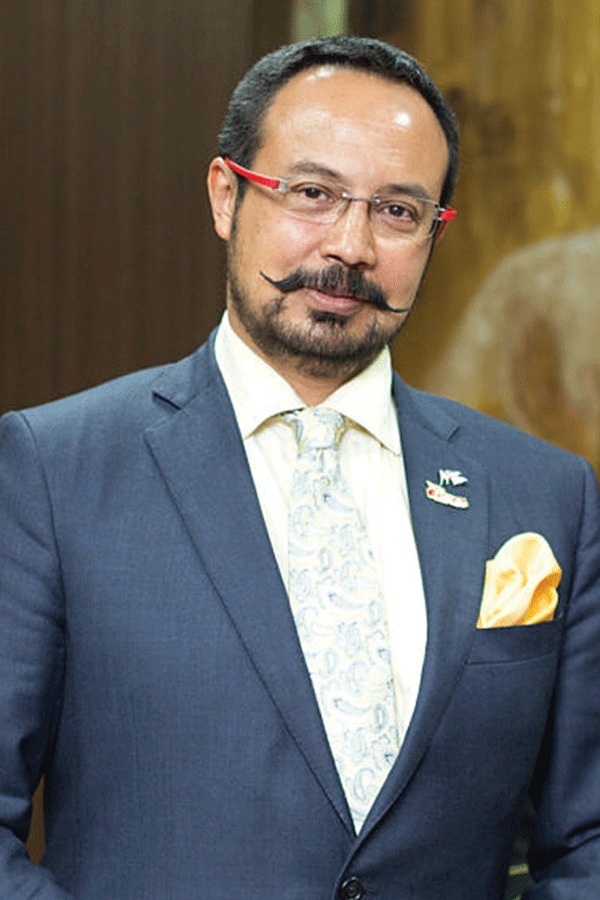
Anil Keshary Shah
Chairperson, Lead Nepal Inc
Policymakers must prioritise reforms that address the root causes of discontent. This includes tackling corruption, ensuring equitable economic opportunities, and fostering inclusive governance. The appointment of Sushila Karki as Nepal’s first female Prime Minister is a step towards breaking traditional political moulds and introducing fresh perspectives. However, sustained efforts are needed to create an environment where meritocracy and integrity are the cornerstones of leadership.
The Gen Z-led revolution of September 8–9 in Nepal has left an indelible mark on the nation’s political and economic landscape. While the immediate aftermath has been tumultuous, it offers a critical juncture for the business community and policymakers to recalibrate and align with the aspirations of a more engaged and digitally empowered populace.
The primary lesson from this upheaval is the imperative for transparency and accountability. The protests were ignited by the government’s decision to ban 26 social media platforms, a move perceived as an attempt to suppress dissent and shield political elites from scrutiny. This action not only curtailed freedom of expression but also exposed the deep-seated frustrations of a generation disillusioned by systemic corruption and economic inequality. The widespread use of digital platforms by the youth underscores the need for policies that embrace, rather than stifle, digital connectivity.
For businesses, this moment calls for a shift towards ethical practices and social responsibility. The destruction of properties, including the Hilton Hotel, and the significant economic losses reported – such as the hotel industry alone suffering damages worth Rs 25 billion – highlight the risks of ignoring public sentiment. Companies must recognise that their success is intertwined with the well-being of the communities they serve. Engaging in transparent operations, fair employment practices, and contributing to societal welfare can build trust and resilience in the face of uncertainty.
Policymakers must prioritise reforms that address the root causes of discontent. This includes tackling corruption, ensuring equitable economic opportunities, and fostering inclusive governance. The appointment of Sushila Karki as Nepal’s first female Prime Minister is a step towards breaking traditional political moulds and introducing fresh perspectives. However, sustained efforts are needed to create an environment where meritocracy and integrity are the cornerstones of leadership.
In conclusion, the Gen Z revolution serves as a clarion call for both businesses and policymakers to embrace change, uphold ethical standards, and engage with the aspirations of a new generation. By doing so, Nepal can navigate the current economic uncertainty and pave the way for a more inclusive and prosperous future.
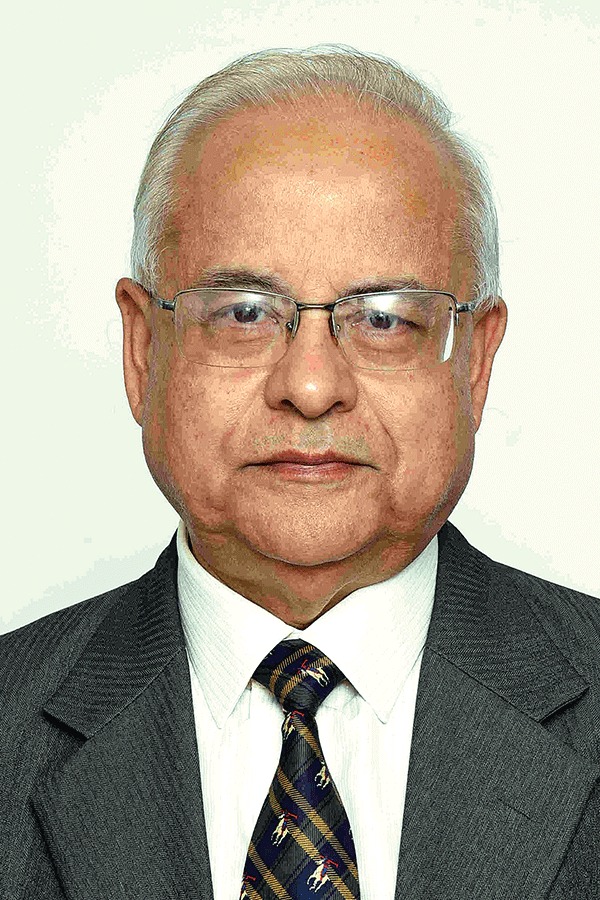
Dr Bijay KC
Dean, Kathmandu University School of Management
History demonstrates that revolutions have failed to alter the system because they merely removed those in power, not the system itself. To rescue the nation from economic shock, a strong government is essential – one that ensures good governance and adopts a zero-tolerance to corruption. We need inclusive institutions that guarantee justice and opportunities for all. Given our limited resources, we must ensure their efficient allocation and discourage unproductive activities. The list of requirements is extensive. However, the quality of our human resources and an effective mechanism to utilise them cannot be overlooked. For this, we must focus on implementing the best management practices and providing quality education.
The economic performance of Nepal can be broadly assessed using three fundamental measures: growth in output, as indicated by the growth in Gross Domestic Product and per capita income; productivity, measured by gross domestic product per economically active person; and job creation, reflected in the employment rate. It is regrettable to note that on all these fronts, Nepal’s economic performance has been profoundly dismal. Economic studies indicate that growth stems from wealth creation which itself arises only through increased productivity. With sound policies, productivity can elevate national income and enhance the well-being of the population. As Michael Porter observes, a country fails to boost productivity due to inadequate policies, insufficient investments, and other factors that render wages and national income difficult to sustain, much less increase.
The current economic situation in Nepal is deeply troubling, and a primary cause is rampant corruption. Weak law enforcement and a deficit of good governance have severely hampered the nation’s economy. The misuse of public funds and the legalisation of misconduct through corrupt practices – amending laws, regulations, and policies to serve vested interests – has institutionalised corruption in Nepal. In such an environment, it is unsurprising that businesses often prioritise non-market competencies, such as lobbying politicians and bureaucrats through bribery, while neglecting market efficiencies that require quality enhancement, innovation and cost reduction. Corruption has detrimentally impacted the political and judicial systems, the bureaucracy, business conduct, and societal norms and values, creating an ‘iron cage’. This has resulted in a loss of trust among the younger generation in the entire system. Have we built Nepal as a nation, leaving aside all questions of development and growth? The recent protests by Gen Z are a clear manifestation of outrage over this situation.
Is there a way out? Yes, but it requires leaders with vision, integrity, commitment and dedication. We need leaders who uphold meritocracy and work tirelessly for the welfare of the nation’s people. Without such leadership, eradicating corruption will be merely a wild goose chase.
History demonstrates that revolutions have failed to alter the system because they merely removed those in power, not the system itself. To rescue the nation from economic shock, a strong government is essential – one that ensures good governance and adopts a zero-tolerance to corruption. We need inclusive institutions that guarantee justice and opportunities for all. Given our limited resources, we must ensure their efficient allocation and discourage unproductive activities. The list of requirements is extensive. However, the quality of our human resources and an effective mechanism to utilise them cannot be overlooked. For this, we must focus on implementing the best management practices and providing quality education.

Abhimanyu Golchha
Director, Golchha Group
For those of us in business, the path is about balance, being prudent and prepared for uncertainty while staying bold enough to seize opportunities. That means improving internal systems, diversifying ideas and fostering talent so that Nepal’s youth can see a future here at home. It also means presenting a united private sector voice to encourage entrepreneurship.
Nepal stands at a turning point and the business community has a vital role in shaping what comes next. The recent unrest has reminded us that economic confidence and social harmony go hand in hand, but it has also shown how resilient and determined our people are. Rather than focus on the turbulence, this is a moment to channel optimism and build a stronger foundation for growth.
The priority now is collective confidence. We need to strengthen trust between businesses and government, among entrepreneurs, and within our workforce so that investment and innovation can flourish. Clear communication, fair practices and a shared commitment to stability will reassure both domestic and international partners that Nepal is ready to move forward.
For those of us in business, the path is about balance, being prudent and prepared for uncertainty while staying bold enough to seize opportunities. That means improving internal systems, diversifying ideas and fostering talent so that Nepal’s youth can see a future here at home. It also means presenting a united private sector voice to encourage entrepreneurship.
Nepal has faced and overcome challenges before and each time we have emerged stronger. If we approach this period with openness and a long-term view, we can turn the lessons of recent weeks into momentum for lasting stability and sustainable growth, proving once again that Nepal’s best days are still ahead.

Akash Shrestha
Director – Strategy and Development, Samriddhi Foundation
The government must launch a clear public campaign to restore dignity to enterprise. In the face of populist suspicion toward business, leaders must affirm that doing business is good, profits are good, and prosperity is desirable. The private sector is not an enemy but the engine of the economy. It not only invests, but also creates jobs, expands Nepalis’ access to global goods and services, and directly raises living standards.
Nepal today faces not just political turmoil but an unprecedented economic shock. The situation remains fluid and uncertain, with the private sector’s morale at its lowest in decades. Confidence has been deeply shaken, and many entrepreneurs are questioning whether it is worth continuing operations at all. Scepticism about recovery and the prospects of new investment are pervasive.
Compounding this is the interim nature of the government. Its principal mandate is to shepherd the country toward elections in six months, not to launch sweeping reforms. That said, the scale of the crisis demands that even an interim government act to symbolically but substantively signal support for the private sector.
Some steps are well within reach. Temporary tax concessions or rebates for affected businesses would ease immediate pressure. The government could also facilitate expedited insurance settlements and commit to covering gaps left by insurers, helping firms resume operations quickly. Moreover, the current Finance Minister, who also led the High-Level Economic Reform Recommendation Commission, is uniquely positioned to implement select reforms his own team previously championed. Measures such as easing foreign exchange restrictions for businesses, digitising selected regulatory approvals, or streamlining customs procedures could be welcome gestures for those still enterprising, and those considering doing business in Nepal.
Perhaps most importantly, the government must launch a clear public campaign to restore dignity to enterprise. In the face of populist suspicion toward business, leaders must affirm that doing business is good, profits are good, and prosperity is desirable. The private sector is not an enemy but the engine of the economy. It not only invests, but also creates jobs, expands Nepalis’ access to global goods and services, and directly raises living standards.
Rebuilding confidence will take more than technical fixes; it requires a fundamental shift in attitude. If the government can set that tone now, that would go some way in laying the groundwork for economic recovery.
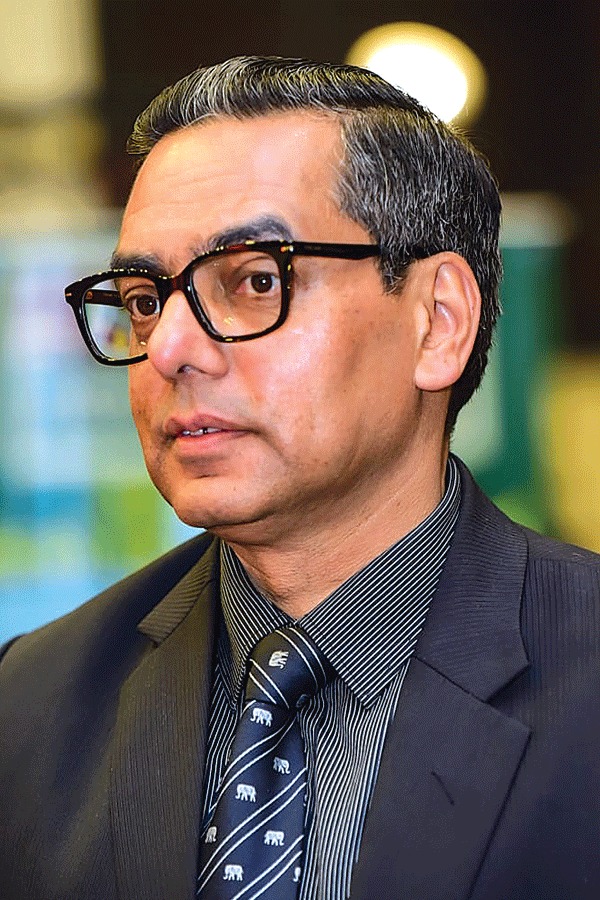
Anal Raj Bhattarai
CEO, NRN Nepal Development Fund
The government should endorse an Economic Continuity Code of Conduct, committing to no abrupt fiscal changes, no arbitrary expropriations, and honouring existing contracts. Publishing updates on anti–money laundering compliance and clarifying hydropower policies will help preserve investor confidence. Liquidity support, if needed, should be targeted at small businesses and agriculture. Equally crucial is administrative reform and digital transformation.
Nepal’s interim government faces the urgent task of conducting elections within six months while preserving economic stability. The focus must be on clarity, fiscal discipline, and confidence-building, ensuring markets, investors and citizens remain secure during this uncertain period.
Immediate Priorities (First Two Weeks):
The government should launch a short Economic Stability Package pledging no arbitrary new taxes, continuing targeted social transfers, and safeguarding a select list of vital capital projects. To restore confidence among depositors and stabilise the markets, Nepal Rastra Bank and Ministry of Finance should consider issuing a joint statement, providing clear assurances of uninterrupted banking operations alongside strengthened monitoring measures. Existing foreign-exchange rules should be reaffirmed, alongside targeted safety nets for food and energy in poorer municipalities.
A bold but necessary step would be the demonetisation of Rs 500 and Rs 1,000 notes, replacing them with new Central Bank Digital Currency (CBDC). This would curb illicit cash holdings, strengthen fiscal transparency, and accelerate the shift toward formal transactions.
During the Election Period (0–6 Months):
The government should endorse an Economic Continuity Code of Conduct, committing to no abrupt fiscal changes, no arbitrary expropriations, and honouring existing contracts. Publishing updates on anti–money laundering compliance and clarifying hydropower policies will help preserve investor confidence. Liquidity support, if needed, should be targeted at small businesses and agriculture.
Equally crucial is administrative reform and digital transformation. Streamlining approval processes, digitising public services, and expanding digital payment infrastructure will reduce corruption, improve efficiency and reinforce confidence in governance during a politically sensitive period.
Preparing for Recovery (1–6 Months):
The interim government should publish a six-month reform calendar outlining improvements to tax administration, progress toward establishing an independent fiscal council, and timelines for bank asset-quality reviews. Fast-tracking the Alternative Investment Fund (AIF) with strong governance safeguards will mobilise diaspora capital into infrastructure.
A phased tax reform plan should broaden the VAT base and advance digital tax collection. At the same time, a joint public-private task force should target three priority export sectors – agro-processing, ICT and hydropower. Strengthening financial sector resilience will require amendments to the NRB Act, systematic loan portfolio reviews, and clearer frameworks for asset grading and non-performing assets (NPAs). To address the capital constraints of BFIs, it is essential to revise the asset gradation system, align NPA management with regional standards, and mobilise fresh capital within the system to expand financing for the private sector.
Communication and Governance:
Weekly updates on reserves and treasury balances, supported by an independent monitoring cell, will boost transparency and accountability.
By advancing fiscal discipline, digital transformation and bold measures such as demonetisation, the interim government can stabilise the present and hand over a stronger foundation for Nepal’s post-election recovery.
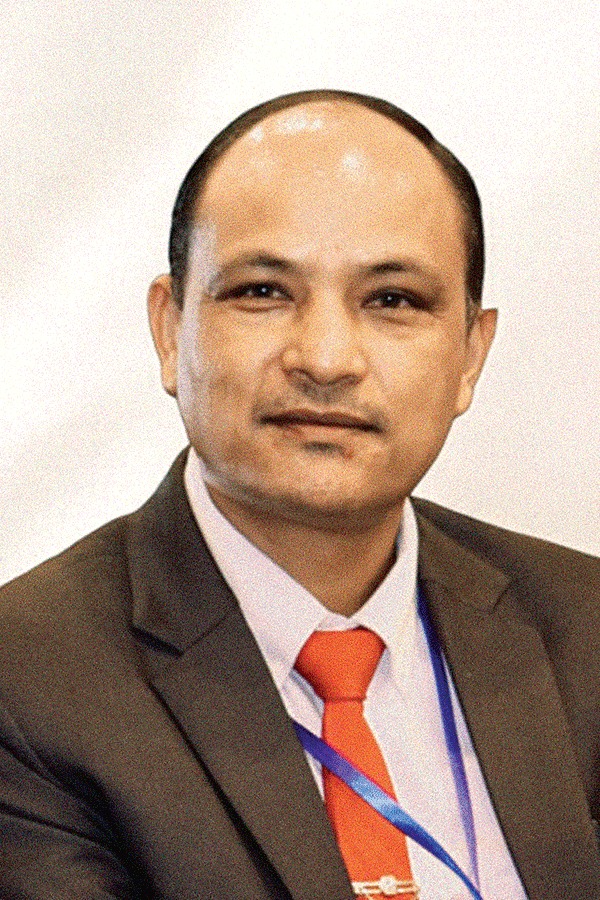
Resham Thapa
Associate Professor, Central Department of Economics, Tribhuvan University
Sudden changes bring opportunities, and we must have more robust economic diplomacy at the forefront. Soft power, like Non-Resident Nepali (NRN) and other individuals working abroad, is ready to contribute to the motherland. We can establish consortium-based investment contact points in several countries to strengthen foreign direct investment channels.
Unequal economic opportunities and a lack of hope for improvement are urgent issues faced by Nepali youths, especially those with access to information. The political landscape has shifted away from traditional party structures. Unfortunately, traditional political parties and security agencies failed to recognise this shift, and both the media and academia overlooked the increasing dissatisfaction among young people. Consequently, the youth’s response led to a breakdown in governance, with the system failing to protect both public and private property. The physical damage is substantial and the psychological trauma may persist for generations. Understanding the underlying economic system, governance failures and youth frustrations is essential. This moment should be viewed as an opportunity for improvement, not a threat. The newly formed government must prioritise addressing these issues immediately to rebuild and shape the country’s future.
1. Public and private properties have been severely damaged, and the government should begin reconstruction immediately. Let’s build a powerful and resourceful authority. We can subcontract construction work and seek support from local and provincial governments. Trusting the local community enhances a sense of ownership and presents an opportunity.
2. The private sector is the engine of a modern economy, and there are modern business engines in Nepal as well. Supporting the private sector through tax channels and interest and loan restructuring options is crucial. Facilitating the insurance process when needed is also essential for reviving the private sector. The curriculum needs to be improved on a large scale to convey that making a profit is not a crime, and the inability to collect proper revenue from the business sector is not solely the private sector’s problem. It is, rather, a failure of the government.
3. The national treasury and fiscal space suggest that besides tax revenue collection, other dimensions are in good shape. We are a classic example of poor capital expenditure, a trend that has persisted for years. Therefore, the new government must create a mechanism that guarantees no reduction in capital expenditure. We cannot afford to cut any development expenditures. This is the time to explore alternative fiscal space options. We can also bring in savings from local and provincial governments into the picture.
4. Sudden changes bring opportunities, and we must have more robust economic diplomacy at the forefront. Soft power, like Non-Resident Nepali (NRN) and other individuals working abroad, is ready to contribute to the motherland. We can establish consortium-based investment contact points in several countries to strengthen foreign direct investment channels.
5. The most important and urgent task is to design a carefully structured corruption control mechanism. Let’s establish a powerful mechanism, one that is less politicised than the current system. We should promote transparency in the public, private and political sectors. Last but not least, holding elections on time is crucial for progress and prosperity. Elections come with both direct and indirect costs. Let’s not curtail any development expenditure in the name of elections.

Swastika Shrestha
CEO, Teach for Nepal
Economic growth is not just about factories, highways or hydropower plants. It begins with people. A strong public education system is the most equitable and accessible economic policy Nepal can pursue. When children from every background – rural, urban, privileged or marginalised – have access to quality learning, they gain the tools to innovate, create livelihoods and strengthen local economies. More importantly, they also learn to question, to collaborate, and to take responsibility as active citizens. In this way, education powers both prosperity and democracy.
Nepal’s economic story in recent decades has been shaped by remittances. While this inflow of money has reduced poverty, it has also come at a high cost: families separated, communities hollowed out, and a nation dependent on jobs created elsewhere. This model cannot sustain long-term prosperity. Nepal must now invest in building opportunities at home, and the pathway runs through education – not only as preparation for work but as preparation for citizenship and democracy.
Economic growth is not just about factories, highways or hydropower plants. It begins with people. A strong public education system is the most equitable and accessible economic policy Nepal can pursue. When children from every background – rural, urban, privileged or marginalised – have access to quality learning, they gain the tools to innovate, create livelihoods and strengthen local economies. More importantly, they also learn to question, to collaborate, and to take responsibility as active citizens. In this way, education powers both prosperity and democracy.
A democratic society depends on citizens who are informed, engaged and capable of shaping collective decisions. Schools are the training grounds for this civic life. They cultivate critical thinking, dialogue and a sense of responsibility toward the community. Without such an education system, economic progress risks becoming shallow – measured only in GDP figures but detached from justice, participation and inclusion.
For this vision to succeed, economic policy must be holistic. Growth cannot be separated from strong public institutions – education, healthcare and transportation – that provide the foundation of equal opportunity. Without reliable schools, accessible healthcare and functioning roads, citizens are excluded not only from the economy but also from full participation in national life.
Equitable development also requires reimagining investment priorities. Empowering people with knowledge and skills is as critical as expanding industries. Policies that support smallholder farmers, women entrepreneurs, and local enterprises – through access to credit, simplified procedures and sustainable technologies – will allow economic growth to take root at the community level. Building resilience in this way reduces dependency on external forces and channels the creativity and energy of Nepalis toward national prosperity.
In short, Nepal’s path forward depends on economic policies that are equitable, accessible and rooted in human potential. By aligning reforms with strong public institutions and an education system that strengthens democracy and citizenship, the country can move beyond remittance-driven growth toward a more resilient and inclusive economy – where prosperity is shared widely, democracy is deepened and no community is left behind.

Asheem Man Singh Basnyat
Managing Director
Pathao Nepal
The cost of corruption is also measured in wasted resources. The Finance Minister recently admitted that cancelling poorly studied projects could save the country almost Rs 100 billion. This is money that could build schools, hospitals or critical infrastructure. Yet, we see bridges built in the middle of empty fields while children in rural areas still pull ropes across rivers just to reach school. This is not just inefficiency. It is injustice.
Corruption in Nepal is not just about bribes. It is about bending laws to benefit a few, blocking opportunities for others, and approving projects without study. When rules are twisted for personal networks, the real cost is borne by the entire nation.
Recent months have shown us how fragile our economy is. Floods washed away the China border road, stopping cross-border trade. The sudden social media ban hit small businesses hard, especially traders who rely on online platforms to market and sell. Soon after, arson and destruction wiped out billions in property, leaving citizens more shaken than the economy itself. These shocks exposed how unprepared we are to absorb disruption.
The cost of corruption is also measured in wasted resources. The Finance Minister recently admitted that cancelling poorly studied projects could save the country almost Rs 100 billion. This is money that could build schools, hospitals or critical infrastructure. Yet, we see bridges built in the middle of empty fields while children in rural areas still pull ropes across rivers just to reach school. This is not just inefficiency. It is injustice.
If we want to rebuild with confidence, three areas demand urgent attention. First, Nepal must promote product and service exports. Growth will not come only from consumption; we need to create value that can compete globally.
Second, we must support small businesses by simplifying taxation, improving access to finance, and equipping them with digital tools. Third, business and taxation education should be made integral in schools and colleges so that a new generation grows up understanding how economies function and why integrity matters.
Equally important, the government must focus on logistics reform. Logistics is the backbone of consumer cost. If transportation remains unreliable and expensive, the burden falls on every citizen, from farmers to urban families. Making logistics smoother and more transparent is one of the fastest ways to bring relief and competitiveness back into the economy.
The way out is clear. We cannot rely on one institution alone. Public and private sectors must work together where partnerships make sense, while some areas remain firmly public and corruption-free. Nepal needs action that restores trust, rewards merit and creates a climate where citizens and investors alike believe this is a country worth building in.
The cost of corruption has brought us here. The choice to rise beyond it rests with us.

Anup Raj Upreti
Managing Partner
Pioneer Law Associates
Nepal needs to achieve economic growth at the rate of about 10.5% every year to achieve our ambition to achieve per capital income of $12,100 in next 20 years. That means a lot needs to be done. I want to see Nepal taking reform initiatives in a war footing on (a) digital transformation and digital governance, (b) allowing and equipping private sector to raise cheaper funds from both domestic and international market, (c) making it easier for deployment of these funds in the form of investments and (d) government taking a back seat in terms of regulation – only regulate what is necessary which is not the case now.
The Gen Z revolution in Nepal has both created disruption and opportunity, forcing businesses and policymakers to confront deep-rooted corruption, youth frustration and fragile state institutions.
The sole focus for next six months should be conducting the election. This period is really not to experiment with any policy reforms or economic policy changes. The current government does not have that mandate nor will it have ‘democratic’ credentials for any policy reforms.
The new government post-election will have a pile of challenges. Nepal probably never lacked good laws to achieve the aspiration of its people. The failure primarily was on account of people that were responsible in its implementation. The most important will be on how to instill public trust in most important institutions – legislative, judiciary and executive. We have seen in many jurisdictions how a single good leadership can change the fate of the nation. Georgia got rid of corruption overnight. Why can’t our leadership make that happen?
The new government should create an environment for the private sector to anchor economic development and to lead reconstruction and job creation of new economy. The public sector should limit itself to those areas where it can undertake more efficiently than the private sector.
Nepal needs to achieve economic growth at the rate of about 10.5% every year to achieve our ambition to achieve per capital income of $12,100 in next 20 years. That means a lot needs to be done. I want to see Nepal taking reform initiatives in a war footing on (a) digital transformation and digital governance, (b) allowing and equipping private sector to raise cheaper funds from both domestic and international market, (c) making it easier for deployment of these funds in the form of investments and (d) government taking a back seat in terms of regulation – only regulate what is necessary which is not the case now.

Chaeng K Agrawal
Managing Director
Image Group of Companies
Transparent procurement, open financial tracking, and no shortcuts; these aren’t slogans, but survival tools for any business or public office. Trust is getting harder to earn and easier to lose. Without it, talent and investment melt away.
Nepal doesn’t lack potential; it lacks honest systems. The cost of corruption is paid in wasted days, lost deals, and broken public faith.
Walk through any market in Kathmandu or sit with small business owners over tea, and the issue is clear: corruption is not just a headline, it’s a daily reality. From stalled building permits to surprise ‘fees’ at checkposts, honest Nepalis pay an invisible tax every day. Every project takes longer. Every investment feels riskier. And every year, younger, talented people start dreaming about leaving Nepal for good.
Nepal sits at 107th in the world for perceived corruption, according to the latest global rankings. That number means more than international shame; it means failing hospitals, broken roads, and rising frustration. Businesses spend energy making the right connections instead of building products. Small startups see their limited capital drained by unpredictable demands. Even farmers find their produce delayed at checkpoints that shouldn’t exist.
Yet look at countries not so different from ours. Georgia cleaned up its government offices, and investors returned. Estonia built digital systems so transparent that corruption all but vanished. Singapore’s predictability turned it into a business magnet. These are real places, not fairy tales, proving reforms work when action beats talk.
Today, Nepal’s Gen Z is showing a new kind of courage. Their protests are not just noise! Bangladesh’s youth overturned unfair education taxes, Sri Lanka’s movement forced leadership changes. In Nepal, their anger is about futures stolen and opportunities lost. They want results, not promises.
That message is a challenge for every leader. Transparent procurement, open financial tracking, and no shortcuts; these aren’t slogans, but survival tools for any business or public office. Trust is getting harder to earn and easier to lose. Without it, talent and investment melt away.
Nepal doesn’t lack potential; it lacks honest systems. The cost of corruption is paid in wasted days, lost deals, and broken public faith. If Nepalis, young and old, demand integrity, the rewards could finally exceed the cost.

Narayan Adhikari
Co-founder and South East Asia Lead, Accountability Lab
One lesson from the turmoil is that Nepal cannot afford to repeat cycles of street protests, violence and destruction each time policy decisions spark outrage. Instead, businesses and civic actors could support the creation of more constructive, institutionalised channels for public participation and opposition. Such platforms could help citizens express dissent productively while protecting macroeconomic stability. In this sense, the business community has a role to play not only in markets but also in sustaining social peace.
Politics of Republic: The events of recent weeks have reminded Nepal’s political class of a simple truth; this is now a genuine republic, where citizens, especially the youth, will not passively accept top-down decrees that ignore their voices. The majority of Nepalis, particularly the younger generation, sees their rights as non-negotiable and are prepared to defend them, even at great personal cost. For policymakers, the lesson is clear: inclusivity in decision-making is not just desirable, it is essential for their political survival. Any failure to acknowledge this reality risks another cycle of unrest that could destabilise the state and end political careers overnight.
The Business Community’s Stake: The private sector has felt the direct impact of this instability. Political missteps that spark social chaos inevitably disrupt markets, weaken confidence and delay investment. Business leaders therefore have a strong interest in discouraging policies that alienate the public. They must remind politicians that decisions lacking public legitimacy are doomed to face fierce opposition. At the same time, businesses should recognise that ordinary citizens are united in rejecting corruption and demanding good governance. Aligning with those aspirations protects long-term business interests and avoids alienating the very communities they depend on.
Building Constructive Alternatives:
One lesson from the turmoil is that Nepal cannot afford to repeat cycles of street protests, violence and destruction each time policy decisions spark outrage. Instead, businesses and civic actors could support the creation of more constructive, institutionalised channels for public participation and opposition. Such platforms could help citizens express dissent productively while protecting macroeconomic stability. In this sense, the business community has a role to play not only in markets but also in sustaining social peace.
Investing in Transparency and Youth: The private sector can drive systemic reform by investing in digital public infrastructure that strengthens transparency in procurement, beneficial ownership and related processes. These efforts build fairer competition, encourage external investment and reduce entry barriers for new players. At the same time, businesses should embrace the role of supporting youth inclusion, whether through workforce development, innovation or reforms that expand opportunities for young people. In doing so, they safeguard their own long-term interests by nurturing a capable, engaged and loyal workforce.
Adapting to a New Era: Ultimately, both policymakers and businesses must learn to adapt with resilience and vision. For the private sector, this means diversifying markets, building global connections, and staying agile in uncertain times. For political leaders, it means being transparent, inclusive, and accountable at every step. Nepal’s Gen Z awakening is not only a call for justice but also an engine for deeper structural change. Those willing to embrace this shift with clarity and courage will shape the country’s democratic and economic future.

Sunil Babu Pant
Founder, Blue Diamond Society
The immediate economic damage of this revolt is visible: tourism has collapsed, small businesses are struggling, and investor confidence has plummeted. The long-term consequences are even more staggering. Both foreign and Nepali investors will hesitate before committing to Nepal unless we demonstrate credible political reform.
The recent Gen Z revolt did not erupt in a vacuum. It was the result of two decades of entrenched corruption, nepotism and extreme ‘dalitiyekaran’ in every sector of government – from the centre to the local level. Senile political leaders have monopolised decision-making while a vast majority of young people remain jobless and deprived of opportunities. Nepal has experimented with monarchy, multiparty democracy and the current republican federal system, but none has delivered political accountability or economic justice. The governance structures imposed so far have proven unsuitable for our diverse nation. What Nepal urgently needs is a consensus-based socialist system that reflects our multiple communities – across gender, caste, geography, language, and cultures. Only such an inclusive model can provide political stability, which is the prerequisite for restoring economic confidence.
The immediate economic damage of this revolt is visible: tourism has collapsed, small businesses are struggling, and investor confidence has plummeted. The long-term consequences are even more staggering. Both foreign and Nepali investors will hesitate before committing to Nepal unless we demonstrate credible political reform.
A Foundation for an Inclusive Future
The state’s fundamental responsibility is to create an enabling environment that ensures economic opportunities are accessible to all, especially for marginalised communities who have been historically excluded. This involves dismantling systemic barriers and proactively building spaces for those who have been left behind. For the youth, this means not only investing in education and skills training but also creating job markets that can absorb them, preventing the brain drain of talent. For women and sexual and gender minorities, this requires implementing and enforcing policies that combat discrimination in the workplace, ensuring equal pay for equal work, and supporting entrepreneurship through targeted financial and mentorship programmes. By doing so, a nation can unlock the full potential of its entire population, leading to a more innovative, equitable and prosperous society. The economic dividends of such inclusion are substantial, as it broadens the tax base, reduces social inequality, and fosters a more resilient and dynamic economy.
The Path to Recovery
To rebuild, Nepal must focus on fundamentals:
• Job creation through manufacturing and by supporting farmers with reliable inputs, irrigation and fair trade policies.
• Effective public administration, which is vital for managing structural transformation and ensuring service delivery.
• Investment in rural infrastructure, particularly in agriculture, to raise productivity and incomes.
• Energy sector reform, with transparent regulation and better market systems, to unlock hydropower’s potential.
• Harnessing remittances by creating financial tools that channel migrant workers’ earnings into productive ventures.
• Tourism revival and agricultural modernisation through stronger public-private partnerships.
• Subnational economic development, empowering provinces and municipalities to innovate and generate local growth.
Corruption has cost Nepal not only financially but also socially and morally. The way forward demands bold political restructuring, inclusive governance, and a renewed social contract rooted in equity and accountability. Only then can we transform this moment of crisis into a foundation for sustainable prosperity.

Kalpana Khanal, PhD
Senior Economist, Policy Research Institute
To go beyond bricks and mortar, Nepal must also address structural issues: the sustainability of agriculture, internal migration, and industrial and commercial investments. To a nation that is faced with difficulties in attracting foreign direct investment, the first step would be creating a safer predictable environment. A reconstruction plan with a Marshall Plan approach, supported by vision, discipline and coordination, would turn the disadvantages of Nepal into opportunities.
Nepal stands at a critical crossroad whereby disaster recovery and long-term development planning need to merge. The current destruction has made it clear how vulnerable our public institutions remain, especially without insurance protocols. When the state is single handedly burdened with the responsibility of reconstruction, little is left to be invested as limited resources are quickly exhausted. In this context, protecting public assets through insurance is not a luxury but a necessity, and that future projects will have to incorporate risk diversification as their fundamental component. Risk decentralisation will reduce losses that are centralised and enable communities to recuperate quicker.
Recovery cannot be limited to rebuilding what was lost. Done transparently and efficiently, the reconstruction process could restore public trust and attract much-needed investment. It must be a platform to build resilience and confidence in the economic future of Nepal. This necessitates a change in the way resources are distributed, no longer focusing on individualised and politically instigated projects but instead focusing on priority projects based on evidence, which will be effective at the ground level. Such a grand vision will require both domestic and international support.
Nepal has foreign exchange reserves that it can use to jump start reconstruction but this must be coordinated. A robust empowered institution (like the post-earthquake re-construction authority), with the mandate to work directly with international donors to facilitate the process and avoid duplication, could be formed to take charge of the rebuilding process. Additionally, rebuilding needs to utilise the capabilities and workforce of Nepali people itself, spurring domestic demand, the same way it happened following the 2015 earthquake.
To go beyond bricks and mortar, Nepal must also address structural issues: the sustainability of agriculture, internal migration, and industrial and commercial investments. To a nation that is faced with difficulties in attracting foreign direct investment, the first step would be creating a safer predictable environment. A reconstruction plan with a Marshall Plan approach, supported by vision, discipline and coordination, would turn the disadvantages of Nepal into opportunities. Based on the experiences in Sri Lanka and Bangladesh, the future movements are in integrating short term recovery with a long-term structure of sustainable growth.
The recovery of a nation like Rwanda demonstrates that with disciplined governance, a long-term vision, and the shrewd utilisation of both internal and external resources, a crisis can be transformed into an opportunity. Nepal can emulate this model by empowering effective and transparent institutions to spearhead the reconstruction process. The endeavour to rebuild Nepal can transcend mere reconstruction of what was destroyed by maximising local capacity and harmonising foreign assistance with national priorities, thereby laying the groundwork for long-term development and sustainability.

Dr Biraj Singh Thapa
Associate Professor, Department of Mechanical Engineering
Kathmandu University, Nepal
For the business community, the lesson is ‘Transformation’. The future will not be secured by trading margins alone but by investing in innovation and skills development that align with the aspirations of the rising generation. Companies that integrate entrepreneurship and sustainability into their core strategy will gain both resilience and growth. For policymakers, ‘authority without accountability is no longer enough’. Policies must incentivise entrepreneurship, research and industrial diversification while tackling corruption head-on. Instead of rigid planning, Nepal needs adaptive frameworks that can navigate technological, political and environmental shocks in line with global scenarios.
The Gen Z revolution in Nepal carries a clear message: “The digitally connected and globally aware youth must be at the centre of political and economic reforms.” Their demand is simple yet profound: “Create a system in which talent and hard effort are rewarded, free from the corruption and favouritism that have long obstructed progress and driven skilled individuals to seek opportunities abroad.”
Nepal’s history reminds us that this is not the first turning point. Once a thriving hub of culture and trade, our sovereignty was safeguarded by bravery and resilience. But internal strife, external pressures, prolonged isolation, and political inability slowed growth. Resources went underutilised, and the system grew vulnerable. Yet, the spirit of unity and courage endured, waiting to be renewed.
Nepal stands at a historic crossroads, where the dreams and sacrifices of its youth hold the power to define a new future. Progress must be built on the nation’s resources, shifting from a trading economy to industrial development. The abundant hydropower potential of Nepal is not only sufficient to meet domestic needs but also holds potential for regional exports. Clean electricity can fuel green growth, reduce dependency on imports, and provide a foundation for industrial developments. Looking ahead, Nepal must invest in industries based on green hydrogen derived from its immense hydropower to meet the growing global demand for energy transitions. With strategic planning, Nepal could emerge as a regional hub for green energy solutions, creating high-quality jobs and attracting global investments.
For the business community, the lesson is ‘Transformation’. The future will not be secured by trading margins alone but by investing in innovation and skills development that align with the aspirations of the rising generation. Companies that integrate entrepreneurship and sustainability into their core strategy will gain both resilience and growth. For policymakers, ‘authority without accountability is no longer enough’. Policies must incentivise entrepreneurship, research and industrial diversification while tackling corruption head-on. Instead of rigid planning, Nepal needs adaptive frameworks that can navigate technological, political and environmental shocks in line with global scenarios.
The Gen Z movement is more than a protest; it is a reset. If businesses and policymakers respond with courage and vision, Nepal can transform disruption into opportunity.

Hemant Golchha
Managing Director
Shangrila Motors
The business community has shown a strong commitment to building back strong and continuing to invest despite the destabilisation from arson and looting, this is commendable and sends a strong message to investors across the world that we are committed to change and progress.
The Gen Z movement against corruption and censorship is a reality check on the extensive reforms needed in the system at all levels – government, business, law and politics. It is very unfortunate that so many young people lost their lives to the violence that unfolded. It need not have been so had we as a society and nation been more attentive to creating and building systems on the values of transparency and accountability.
The impact of corruption on the private sector is considerable. It is not only costly for business, it distorts competition, impedes growth, and represents serious legal and reputational risks. The World Bank has stated that bribery has become a trillion-dollar industry globally. When there is no faith in authority, law or administration, it creates frustration and instability. Accountability systems for government and bureaucracy should be mandatory, as it should be for businesses to function with adherence to transparency.
In the near past, businesses had to continually lobby for better policies much of which were not realized. Corruption grew unchecked. Certain entities bought favours through political clout creating a playing field that was not only unequal but damaging for all. Paperwork for business is a tedious multi window process. Use of technology reduces human interface and loopholes for corruption and this is the need of the hour.
We have been in business for generations, and the one thing I have truly received as a legacy is the ability to make the right choice in the most difficult situations. This ensures that I choose projects with integrity. I am committed to the shift that is taking place in the country towards building good governance and accountability from all stakeholders. The business community has shown a strong commitment to building back strong and continuing to invest despite the destabilisation from arson and looting, this is commendable and sends a strong message to investors across the world that we are committed to change and progress.

Shabda Gyawali
Investment Director
Dolma Impact Fund
Nepal does not need grand, capital-heavy projects to shift public mood nor is that the expectation from an interim government. What it needs are quick, visible reforms: faster approvals, consistent rules, reliable public services, and easy access to petty, day-to-day government services without delays or hassles. Small, tangible improvements can restore confidence. Only then will the vibe economy begin to align with the macro data, making stability more than a headline.
According to the published data, Nepal’s economy looks stable. Foreign exchange reserves are strong, inflation is contained, interest rates have eased, and the last government had begun signalling reforms. To multilateral agencies and in official announcements, these indicators projected stability.
On the ground, however, the recent protests and pent-up frustration revealed – and continue to reveal a very different story. Households remain uneasy about jobs and rising living costs. Young people increasingly see their future abroad. Entrepreneurs hesitate to invest despite cheaper credit, citing weak demand and unpredictable regulations. Even the stock market reflects doubt more than confidence.
This is the vibe economy – the gap between official indicators and how people actually experience the economy. Institutions may track numbers but people respond to how secure they feel in daily life.
And this gap matters. Nepal does not need grand, capital-heavy projects to shift public mood nor is that the expectation from an interim government. What it needs are quick, visible reforms: faster approvals, consistent rules, reliable public services, and easy access to petty, day-to-day government services without delays or hassles. Small, tangible improvements can restore confidence. Only then will the vibe economy begin to align with the macro data, making stability more than a headline.
Immediate steps could help. The government could announce targeted relief for businesses hurt during the protests through concessional loans, easier insurance claims, temporary tax breaks or streamlined approvals. Such measures would send a clear signal that the state stands with its private sector.
Equally important are the low-hanging reforms already flagged by the Khanal Commission. Process improvements such as digitised services, quicker clearances, and simpler tax and licensing rules directly affect daily life. Now that Khanal himself is finance minister, decisive action would show that reforms are not just promises but reality.

Suman Rayamajhi
MD & Co-founder, Upaya
Nepal has often been labelled as a ‘crony capitalist state’ a stigma that must be addressed and eliminated for the advancement of democracy and the preservation of our constitutional framework. It is crucial that we come together in a spirit of unity and responsibility to transform these challenges into opportunities for a more transparent, accountable and democratic Nepal.
The recent Gen Z revolution has brought about unexpected changes in Nepal. While the movements has resulted in the tragic loss of young lives and damage to both private and public property, an outcome that is deeply unacceptable and heartbreaking, raises an important step toward addressing biggest issue of systematic corruption in the country. We remain hopeful that these changes will contribute to the long-term prosperity and stability of Nepal.
Currently, the nation is in a transitional phase. The private sector, which is vital for economic growth, requires a stable environment that can only be assured through the successful conduct of upcoming elections. It is imperative that all stakeholders, including the interim government, political parties, bureaucrats, the private sector and the general public should collaborate and cooperate to ensure the elections are held as scheduled.
The key lesson for all stakeholders moving forward is to intensify efforts in curtailing corruption and enhancing accountability. Sadly, Nepal has often been labelled as a ‘crony capitalist state’ a stigma that must be addressed and eliminated for the advancement of democracy and the preservation of our constitutional framework. It is crucial that we come together in a spirit of unity and responsibility to transform these challenges into opportunities for a more transparent, accountable and democratic Nepal.

Narottam Aryal
President, King’s College
Profit should not be viewed as something ugly; it is the fuel that drives industries, creates opportunities and helps society progress. At the same time, businesses themselves must rethink how they operate. This is the right moment to reflect and redesign missions and processes so that companies focus not only on profit but also on impact. Nepal’s young generation is not just a market of customers but also workers, entrepreneurs, and community voices. They care deeply about honesty, fairness, autonomy and responsibility. To succeed in this environment, businesses must listen carefully and act with integrity.
I strongly believe in individual freedom and entrepreneurship. Only when people are free to use their imagination and creativity can a society truly prosper. Nepal has tremendous young talent and resources, but to unlock this potential we need a safe and supportive ecosystem backed by sound public policies. At the heart of this lies a fundamental requirement: the protection of individual property. Sadly, respect for wealth creators is still weak, and many entrepreneurs live in constant fear about the safety of their assets. The recent Gen Z protests, where businesses were vandalised and burned, exposed this problem. Such acts must be punished, affected businesses must be compensated, and the state must guarantee protection in the future. Profit should not be viewed as something ugly; it is the fuel that drives industries, creates opportunities and helps society progress.
At the same time, businesses themselves must rethink how they operate. This is the right moment to reflect and redesign missions and processes so that companies focus not only on profit but also on impact. Nepal’s young generation is not just a market of customers but also workers, entrepreneurs, and community voices. They care deeply about honesty, fairness, autonomy and responsibility. To succeed in this environment, businesses must listen carefully and act with integrity.
Young people today do not tolerate hidden deals or unclear decisions. They expect openness and honesty in the way businesses function. By definition, a business exists to create and exchange value transparently. Companies should communicate clearly, make decisions openly, and practice good governance, because that is what builds trust. They must also follow the law strictly, uphold the highest ethical standards, and avoid unhealthy ties with politics or bureaucracy. Doing the right thing should be valued more than chasing quick, narrow gains.
Nepal also faces a serious shortage of meaningful employment opportunities. Businesses must therefore commit to creating jobs that help young people develop skills and plan their futures, in partnership with the state, educational institutions, and the community.
Finally, businesses must see themselves as part of society at large. Great companies don’t just give back to communities; they work alongside them as true partners. By engaging in education, social initiatives, or collaborative projects, businesses can build trust and earn lasting respect. When communities thrive, businesses thrive too.
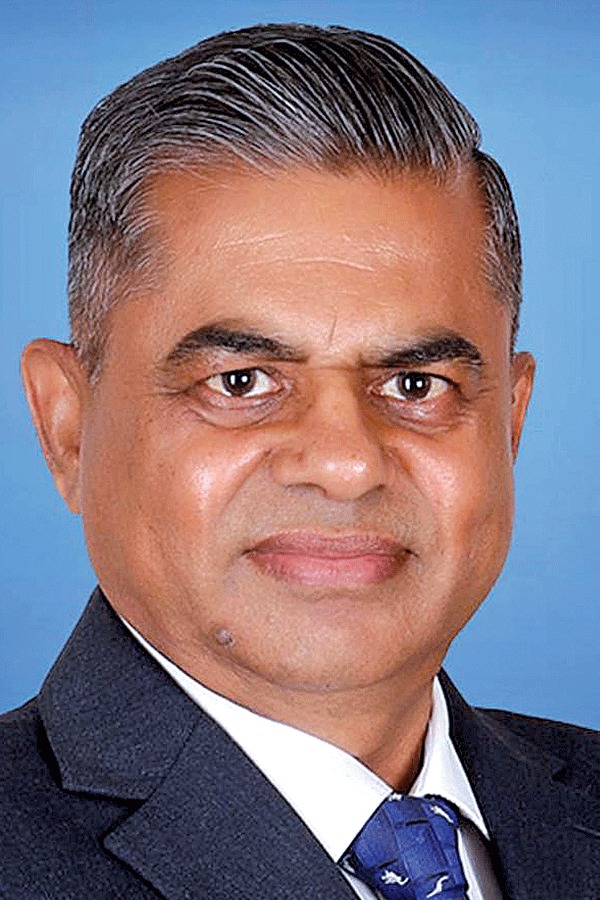
Anil Kumar Sinha
Former Judge, Supreme Court of Nepal
Trust in government and institutions must be restored to create a stronger and more united society. Success should depend on hard work, not access to power. Investors must regain the confidence to put their money where risks are reduced and fairness enhanced. Transparency must be at the heart of the recovery. Let digital tools, transparent audits and public reporting prevail. Fair systems and a positive attitude toward business – coupled with an enabling environment – can give genuine entrepreneurs a chance to rebuild the nation economically. Strong and fair investigation, proper action against corruption and favouritism, and public faith in the judiciary for fair judgement can alone send a positive message.
The entire economy of Nepal is now facing an unprecedented shock, attributable not only to mass destruction of businesses but also to a profound loss of confidence and deep social damage. The Gen Z protests targeted rampant and visible corruption as well as the political audacity to conceal ‘money grab adventurism’ under the shield of power. People within and around the government, in both politics and the bureaucracy, underestimated the non-violent strength of Gen Z. While previous generations had accepted corruption as a part of doing business – often adding it as an attributable cost to their inputs to pass on to consumers – Gen Z demanded a system free from corruption and simpler processes to enable their work for good causes.
It is difficult to believe, but the manner of the destruction clearly points to orchestrated planning rather than spontaneous action. Do the conspirators and perpetrators intend to force this innovative generation to leave the country as a result of vanishing jobs and opportunities? Gen Z recognised corruption as a deep-rooted, hidden enemy, not only for the money lost but for the opportunities stolen.
Mental preparedness, system development and physical infrastructure are now the way forward. What is needed is not only the reconstruction of physical infrastructure but also tactical and sustainable planning. We must beware of possible corruption during reconstruction through bribes and favouritism. Instead of helping society heal, such practices will again waste scarce resources and further deepen public frustration.
Now is the time to test the nation’s resilience. Let us make integrity the foundation of rebuilding.
Trust in government and institutions must be restored to create a stronger and more united society. Success should depend on hard work, not access to power. Investors must regain the confidence to put their money where risks are reduced and fairness enhanced. Transparency must be at the heart of the recovery. Let digital tools, transparent audits and public reporting prevail. Fair systems and a positive attitude toward business – coupled with an enabling environment – can give genuine entrepreneurs a chance to rebuild the nation economically. Strong and fair investigation, proper action against corruption and favouritism, and public faith in the judiciary for fair judgement can alone send a positive message.
The fight against corruption is not only the government’s job. Communities, media and citizens must demand accountability. Refuse corruption and speak up against unfair practices.

Raj Gyawali
Founder, Social Tours
The harder truth we must face is corruption. This is the cost we have paid as a nation. Tourism is not exempt. If we want a resilient sector, we need qualified leaders – at the Ministry, at Nepal Tourism Board, and across industry associations. Leadership must be professional, strategic and forward-looking, not partisan or power-centric. That means internalising the principles of good governance, breaking away from self-interest, and working together.
The tourism sector in Nepal is once again standing at a crossroads. The recent nationwide protests, the tragic loss of lives, the resignation of the government, and now the formation of an interim leadership with elections announced for March 2026, have shaken confidence in the country. For tourism, this means an immediate threat of cancellations, and in the longer term, a serious need to rebuild credibility.
Our first responsibility as an industry is accurate crisis communication. We must speak in one voice: yes, Nepal has had a political upheaval, but it has successfully transitioned into a stable interim government. Critical tourism infrastructure is in place and fully functional. Security has been re-established. Health care and emergency rescue systems remain operational. Most importantly, the sector remains deeply committed to keeping travellers safe and ensuring the hundreds of thousands of jobs it supports are protected. This message must be clear, coordinated and consistent.
But once that is established, the upheaval also offers an opportunity. The movement that triggered these changes was largely Gen Z. We need to listen to their concerns, invite them into the discourse, and ensure their voices shape the future of tourism. Their priorities – whether around climate action, transparency, or inclusion – are our road map to relevance.
The harder truth we must face is corruption. This is the cost we have paid as a nation. Tourism is not exempt. If we want a resilient sector, we need qualified leaders – at the Ministry, at Nepal Tourism Board, and across industry associations. Leadership must be professional, strategic and forward-looking, not partisan or power-centric. That means internalising the principles of good governance, breaking away from self-interest, and working together.
A concrete solution is the creation of a Tourism Federation, built to focus on good governance and long-term growth, working hand-in-hand with the Ministry and NTB. Together, these three pillars could provide financial sustainability and strategic stability for the industry.
Tourism touches everything – government, operators, hotels, transport, agriculture, handicrafts, technology, finance, and more. Done right, it can help us recover from this crisis stronger than before. The path is clear: communicate stability, embrace new leadership, and commit to strategies that make us resilient to future upheavals.

Bhushan Tuladhar
Former CEO & Board Member
Sajha Yatayat
The time for ‘business as usual’ is over. The future demands bold, immediate action. Nepal’s Gen Z revolution offers us a unique opportunity to reimagine a peaceful, inclusive and prosperous society. Whether we are running a small family business or working in a large government office, embracing change, engaging youth and acting swiftly will help us move forward – together in the spirit of this transformative movement.
“Optimism is the faith that leads to achievement. Nothing can be done without hope and confidence.” – Helen Keller
One of the most remarkable outcomes of Nepal’s Gen Z revolution is the resurgence of hope and optimism, especially among the youth. This renewed spirit should be our foundation for the journey ahead and the driving force behind our collective growth and wellbeing. The road will be challenging and obstacles are inevitable. But if we can nurture and sustain this hope, we can navigate the waves of political, social and economic uncertainty and move toward a more prosperous future.
To keep this hope alive, I believe we must focus on three key actions:
1. Embrace Change: The Gen Z revolution’s demand was good governance and a corruption-free society. Meeting this demand requires each of us to rethink how we work, ensuring greater transparency and accountability at every level. Change begins with us. As Mahatma Gandhi wisely said, “Be the change you want to see in the world.” We must stop pointing fingers and start transforming our own practices.
2. Engage the Youth: With 43% of Nepal’s population between the ages of 16 and 40, we are in the midst of a ‘youth bulge’. Young people are not just the largest demographic, they are the primary drivers of innovation, consumption and social change. Their needs and aspirations must be at the heart of our development agenda. We must listen, understand and empower them to lead the way.
3. Act Now: The youth have already knocked on our doors – with urgency, energy and a ‘can-do’ attitude. Technology has amplified their voices and accelerated their momentum. We must respond with equal urgency by improving the efficiency and effectiveness of our work. The time for ‘business as usual’ is over. The future demands bold, immediate action. Nepal’s Gen Z revolution offers us a unique opportunity to reimagine a peaceful, inclusive and prosperous society. Whether we are running a small family business or working in a large government office, embracing change, engaging youth and acting swiftly will help us move forward – together in the spirit of this transformative movement.

Surya Karki
Co-founder & Marketing and Sales Director, Delish Dairies
The government cannot continue to treat businesses as cash machines or problems to manage. Businesses need to be part of rebuilding the country, not just an afterthought. This means sitting down together, asking, “What real obstacles are in your way?” and actually listening – not just offering temporary relief or more rules and making businesses true stakeholders will only help. Why not set up a standing public-private consortium that develops solid policy and investment strategies for the long haul?
Economic uncertainty right now boils down to a crisis of confidence. The Gen Z revolution has made clear that a significant, vocal part of Nepal won’t accept the old ways: corruption, closed-door decisions, and lack of accountability. Business leaders and policymakers have to ditch the tired playbook. Instead, now is the time to start fresh, with genuine partnership and radical transparency.
First, the government cannot continue to treat businesses as cash machines or problems to manage. Businesses need to be part of rebuilding the country, not just an afterthought. This means sitting down together, asking, “What real obstacles are in your way?” and actually listening – not just offering temporary relief or more rules and making businesses true stakeholders will only help. Why not set up a standing public-private consortium that develops solid policy and investment strategies for the long haul?
On the business side, the message is obvious. The recent events were a wake-up call from a new, demanding generation. We must ask ourselves: what will it take to earn the public’s complete trust? The answer lies in radical transparency. This means open, honest communication about what we do and how we do it. Businesses must move away from curated messaging and towards a culture of authenticity. By proactively engaging with the community and demonstrating integrity, we can build the trust that is the bedrock of long-term economic stability. For Nepal’s economy, this in-house confidence is the essential first step in regaining the ability to attract foreign investment.
The Gen Z movement demonstrated the unprecedented power of technology to mobilise masses and effect change. This lesson extends far beyond the streets. It is an opportunity for businesses and the government to together shape the future of a digitally-driven nation. Businesses can and must lead this charge. Imagine companies supporting the government in developing transparent, blockchain-based systems for public works contracts to eradicate corruption, or platforms that provide real-time, public access to information on government spending. Companies in traditional industries have a clear opportunity to spearhead the adoption of technology to optimise supply chains and enhance consumer communication – a powerful counter-narrative to a history of deceit.
This is more than an economic challenge; it is a generational opportunity to redefine the core values of our nation’s economic and political landscape. The uncertainty has revealed a deep hunger for accountability and a willingness to embrace change. The primary lesson for both the business community and policymakers is the same: the old ways are obsolete. By treating each other as equal stakeholders, embracing transparency, and harnessing technology, we can rebuild not just the economy, but also the very pillars of a more resilient, trusting, and prosperous Nepal.
At Delish, we are definitely going to be doing that. This is a wake-up call for a traditional industry like dairy, and specifically an opportunity for a forward-thinking company like Delish. It is the right time for us to push for innovation in the sector.

Bhagwat Bhattarai
President, Society of Economic Journalists-Nepal
Frustration builds when citizens have to pay extra for basic services, when the private sector struggles to maintain a fair market, and when every process is tainted by payoffs. This frustration was the seed for the Gen Z movement. Despite heavy losses, private-sector representatives remain hopeful that corruption and misrule may finally be eliminated. The movement has shattered the belief that corrupt leaders can treat citizens as powerless. The real test is whether the protest’s spirit will shape the upcoming elections in March next year, setting the stage for better governance and accountability.
Fed up with rampant corruption and weak governance, Nepal’s youth, or Gen Z, have shaken the system. A two-day protest created a major security threat for senior political leaders. The new administration, formed under the leadership of a civic society, has proven the movement is not just about resistance but a genuine need for change. Despite some incidents, it has created an environment for better governance.
The public has long voiced its opposition to entrenched corruption at every level, yet authorities never made a serious effort to curb it. The lavish lifestyles of politicians, built on a foundation of misrule, only deepened public resentment. The protest gained momentum when the government suddenly banned social media.
According to a Transparency International report, Nepal ranks 73rd out of 180 countries for corruption, meaning 107 countries are less corrupt. Even after being grey-listed by the Financial Action Task Force (FATF), the government focused on its own survival and benefiting close allies rather than fighting corruption and mismanagement. Every section of society has been exploited as a result.
The rot has spread deep, exposed by ruthless demands for commissions during budget allocations, bribes for government appointments, and the inaction of anti-corruption bodies. Corruption is not just about money under the table; it also damages Nepal’s national and international image, weakens governance and discourages new investment.
Frustration builds when citizens have to pay extra for basic services, when the private sector struggles to maintain a fair market, and when every process is tainted by payoffs. This frustration was the seed for the Gen Z movement. Despite heavy losses, private-sector representatives remain hopeful that corruption and misrule may finally be eliminated.
The movement has shattered the belief that corrupt leaders can treat citizens as powerless. The real test is whether the protest’s spirit will shape the upcoming elections in March next year, setting the stage for better governance and accountability.
To end the practice of winning elections with money and create a framework for clean governance, citizens must carefully choose the right candidates. Representatives elected through public trust are more likely to understand people’s real problems and help break the cycle of misrule.
The new civic-led administration’s primary task may be to steer the election but its main responsibility is to eradicate corruption. If this energy is guided in the right direction, the movement could be a turning point for Nepal’s economic and social transformation. With firm steps against corruption, the country can lay a solid foundation for economic recovery, nurture healthy competition and encourage people to believe in their own skills rather than connections.
Within just a week, the new government, led by civic leaders and supported by ministers with relatively clean reputations, has already offered a ray of hope. Ultimately, political representatives chosen by the citizens will still run the state but the steps taken now will be crucial in steering them onto the right path.

Manish K Khemka
Executive Director, BLC Holdings
Immediate measures to stabilise the economy and create job opportunities for the youth are essential. This includes launching a Youth Employment Guarantee Scheme, focusing on digital, green and infrastructure sectors. Tax incentives for startups and SMEs led by young entrepreneurs, while infrastructure projects-both ongoing and approved, are to be fast-tracked with transparency. Support should also be extended through incentives for indigenous products and fair compensation to those affected by the recent unrest. For long-term impact, investments should be made in vocational training and digital literacy, alongside expanding public-private partnerships in tourism, agriculture and renewable energy.
Nepal is at a seismic inflexion point, its economy shaken to the core. The September 2025 youth-led uprising, triggered by the government’s ban on 26 social media platforms, has left a lasting impact. This historic revolt, driven by Gen Z, resulted in 74 deaths, including school children, 2,113 injuries, and the dissolution of the parliament led by Prime Minister KP Sharma Oli.
The destruction of historical and culturally significant properties, such as Singha Durbar and the Supreme Court, alongside numerous private properties, has caused an estimated loss of over $750 million. However, the movement was not solely about the social media ban; it was fuelled by widespread frustration over corruption, nepotism and economic stagnation, as well as a lack of opportunities for young people.
Corruption in Nepal is a deeply entrenched issue permeating nearly every sector, from government and judiciary to health services and education. Transparency International’s Corruption Perception Index 2024 ranks Nepal 107th out of 180 countries, with 84% of respondents identifying government corruption as a major problem. This hidden cost, often dubbed a ‘stealth tax’, sees efficient firms losing out to those willing to pay the highest bribes. This dynamic fosters public power abuse for personal gain, eroding trust in institutions. High-profile scandals like Lalita Niwas and the fake VAT Bill highlight the extent of corruption. Nepal’s grey economy now encompasses up to 40% of GDP, and the country was re-added to the FATF grey list on February 21, 2025, signalling systematic failures in anti-money laundering and counter-terrorist financing efforts. Despite political leaders’ promises, public frustration continues to mount, culminating in recent catastrophic events.
To overcome the current situation and set a roadmap for future double-digit growth, I believe the following strategies are crucial:
Rebuild public trust: Immediate steps include forming an independent anti-corruption body with Gen Z voices, publishing officials’ asset declarations, digitising services to reduce bribery and banning candidates with criminal or corruption charges. Medium-term priorities include reforming political financing, protecting whistleblowers, ensuring judicial independence and speeding up corruption trials.
Economic Stabilisation and Youth Employment: Immediate measures to stabilise the economy and create job opportunities for the youth are essential. This includes launching a Youth Employment Guarantee Scheme, focusing on digital, green and infrastructure sectors. Tax incentives for startups and SMEs led by young entrepreneurs, while infrastructure projects-both ongoing and approved, are to be fast-tracked with transparency. Support should also be extended through incentives for indigenous products and fair compensation to those affected by the recent unrest. For long-term impact, investments should be made in vocational training and digital literacy, alongside expanding public-private partnerships in tourism, agriculture and renewable energy.
Digital Governance and Civic Engagement: Embracing digital governance can enhance transparency and efficiency in public administration. Encouraging civic engagement through digital platforms can also foster greater accountability and participation in decision-making processes.
It is time for every Nepali citizen to unite behind a transformative vision to build a robust and equitable system, where the nation’s prosperity is the ultimate goal. The era of incremental adjustments is over; resolute action is required to ensure a brighter future for Nepal.

Purushottam Ojha
Former Commerce Secretary, Government of Nepal
Consultant on Trade, Transit, Investment and Private Sector Development
At this critical juncture, the business community’s main task is to cooperate and collaborate with the government to build economic resilience. Business organisations such as the FNCCI and CNI should encourage their members and individual entrepreneurs to rise to the challenge, regain strength, and rebuild confidence. They must work alongside the government to create a business-enabling environment, reducing bureaucratic hurdles and making necessary adjustments to existing laws and procedures.
The two-day Gen Z uprising was an unprecedented event that openly expressed the youth’s anger and frustration toward Nepal’s major party leaders, who are widely viewed as corrupt, inept, and inefficient – diverting national resources for personal gain and to benefit their supporters. The destruction of public and private property, including buildings, plant machinery, equipment, and vehicles, was colossal and is estimated to amount to several billions. This has instilled fear among potential domestic and foreign investors, dampening the country’s aspiration to graduate from Least Developed Country status by 2026.
In the aftermath of the Gen Z uprising, there are critical lessons for both public-sector policymakers and the business community. The government’s primary focus should be on reconstructing and rebuilding infrastructure damaged in the riots, burning, and vandalism. Secondly, immediate austerity measures should be introduced to cut public expenditure on non-essentials such as vehicle and furniture purchases, curtail foreign visits, and reduce the number of civil servants. Less essential public offices could be closed or merged with similar entities. A clear roadmap must be developed to amend the current constitution, as there is widespread public anger over its costly structures – including numerous Commissions and Provincial Governments – that drain scarce resources without delivering concrete outcomes. Additionally, the government should increase investment in infrastructure development to help attract private sector investment.
At this critical juncture, the business community’s main task is to cooperate and collaborate with the government to build economic resilience. Business organisations such as the FNCCI and CNI should encourage their members and individual entrepreneurs to rise to the challenge, regain strength, and rebuild confidence. They must work alongside the government to create a business-enabling environment, reducing bureaucratic hurdles and making necessary adjustments to existing laws and procedures.

Shourya Thapa
Student
Nepal’s youth is not asking for charity, they are demanding a chance to participate in rebuilding their nation. If the government truly listens, this anger could yet become the spark that lifts Nepal from despair to renewal.
Plumes of dark smoke that polluted the otherwise blue skies of Kathmandu on September 8 and 9 as disillusioned youth took to the streets was an eruption of frustration long in the making. The Gen Z movement reflected not only anger at unemployment and corruption but also deep despair at a system that seemed incapable of delivering progress.
Ousting the ruling government, the protests marked a turning point for Nepal: the frustration of youth no longer silent. They is an urgency to transform discontent into lasting reform.
Each year, thousands of young Nepalis graduate with degrees that lead nowhere. According to Nepal’s macroeconomic data, the unemployment rate fluctuates at around 10.7% with GDP growth of 4.6%. These numbers show that for those who want to work, there are too few jobs, and for those who want to stay, there is little reason to hope. It is no surprise then that over 2.5 million Nepalis have left the country in just the past three years to seek a future abroad. The cost of this exodus is more than economic; it drains the nation of energy, creativity, and belief in change.
The message to Gen Z has been devastating: merit means little, and integrity even less. However, the Gen Z movement has turned the tables, it provides a formidable impetus for hope and change: first, by restructuring the state to make it efficient, transparent and eradicating the deeply entrenched rent-seeking culture that hinders the delivery of public goods and services as intended. Second, by creating economic opportunities. In the 1930s, plagued with the same problems, the USA introduced a series of government-backed employment programs which would also develop the nation’s physical infrastructure. President Franklin D. Roosevelt introduced the New Deal Acts with the Tennessee Valley Authority being the most notable. It gave Americans work and hope during the Great Depression by funding large-scale hydroelectric projects. Nepal too can launch joint public-private national efforts that employ its youth to build roads, hydropower, and industries that shape the future. Advancements in these sectors act as precursors to a healthy economy; an economy in which foreign investors would be eager to engage. Additionally, it is crucial to have business-friendly policies for economic growth.
Nepal’s youth is not asking for charity, they are demanding a chance to participate in rebuilding their nation. If the government truly listens, this anger could yet become the spark that lifts Nepal from despair to renewal.

Saurabh Jyoti
Chairman, Padma Jyoti Group
For the business community, the primary focus must now shift from preservation of privilege to restoration of trust. The young generation’s discontent was not born overnight; it stemmed from years of perceived inequality, lack of opportunity, and a widening disconnect between corporate success and social inclusion. Business leaders must recognise that profit without purpose is unsustainable.
Nepal stands today at a defining moment. The recent Gen Z–led revolution, which toppled the government and unleashed a wave of anger against the established economic order, has left the nation’s business community shaken. Factories have halted, investors have retreated, and homes of respected business leaders have been targeted — eroding confidence in both governance and enterprise. Yet, within this turmoil lies an opportunity for reflection and reinvention.
For the business community, the primary focus must now shift from preservation of privilege to restoration of trust. The young generation’s discontent was not born overnight; it stemmed from years of perceived inequality, lack of opportunity, and a widening disconnect between corporate success and social inclusion. Business leaders must recognise that profit without purpose is unsustainable. The future of enterprise in Nepal depends on rebuilding credibility — through transparency, ethical practices, fair wages, and active engagement with youth-driven innovation. Entrepreneurs must open doors for collaboration with young minds, support start-ups, and invest in communities that feel left behind. Only when business is seen as a force for shared prosperity, not exploitation, can confidence return.
For policymakers, the lesson is equally profound. Economic stability cannot rest solely on traditional power structures or elite consensus. The new generation demands accountability, inclusion, and a system that rewards effort, not access. Policymakers must therefore prioritize reforms that democratize opportunity — education aligned with the modern economy, startup-friendly regulation, and fair taxation that encourages enterprise rather than punishes success. Public policy should act as a bridge between the old and new economies, guiding both business leaders and youth toward a shared national vision.
Nepal’s path forward depends on empathy and collaboration, not confrontation. The Gen Z revolution has exposed the cracks, but it has also revealed a nation hungry for change. If business leaders and policymakers can listen, adapt, and lead with integrity, this crisis may well become the catalyst for Nepal’s most transformative economic era yet.

Bhojraj Pokhrel
Former Chief Election Commissioner
The interim government does not have the time or the mandate for long-term policymaking. Yet this is the right moment to initiate reforms that have long been blocked, steps that can uplift the demoralised business sector. If confidence is built now, future governments will find it difficult to roll back such measures.
Gen Z has always been considered a neglected generation. But through this protest, they have demonstrated a deep sense of responsibility toward the nation. They showed ‘We are something; and if we wish, we can bring change’. I have immense respect for the bravery and dedication they displayed in standing against widespread corruption and in striving to protect the nation from failure. In doing so, they have set a global example proving that if Gen Z chooses, they can indeed bring a big change. Of course, this journey has come with sacrifices. Many lives were lost and I express my deepest sorrow for that. May those who lost their lives rest in peace.
They have set a global example of resistance against misgovernance; it reminded us that governance must be accountable, the rule of law must prevail, good governance must be ensured, and corruption is the true enemy of the nation and must never be tolerated. Political instability has cost us dearly and has clearly shown that we need a stable government. At the same time, the youth have given us another encouraging message: ‘We too have a say in how the country needs to be. We have our rights, and we will not remain silent.’ The issues raised by Gen Z should be the primary focus now. While finding solutions to their concerns, we must bring them in as partners because they understand what the next generation aspires to, more than people from my generation. Every sector must revisit and reframe its policies in ways that address the aspirations of this rising generation.
Another message we must understand at this point is this: Unlike indiscriminate attacks seen previously, here the actions were targeted towards specific institutions and specific individuals. We need to reflect on why those institutions and people were targeted. For instance, why was the Parliament building attacked? As per my understanding, it failed to deliver a stable government, failed to perform its role, and often acted like a puppet in the hands of a few individuals. In a parliamentary system, Parliament should be the strongest institution, yet it was one of the weakest in the country. Mismanagement and misconduct bred anger. Even attacks on Singha Durbar, Parliament and the Judiciary reflect this frustration. While the masses expressed generalised anger, the fact that specific files and desks were targeted might show involvement of some criminal elements if the news is true. Accountability, fairness, transparency in state affairs and policy consistency are essential.
Speaking of the business sector, despite being in a difficult situation, even when suffering losses, they have shown resilience by choosing to move forward. That in itself is exemplary. We must also redefine how we view the private sector. Too often, it has been seen only as a profit-seeking body. The time has come to change this narrative: the private sector is also a key partner in nation-building. They must be provided with an environment where they never feel viewed with negativity. That requires national awareness. Now, the responsibility lies in addressing their concerns to rebuild credibility and restore their trust. For the government’s part, it is not enough to give verbal assurances. It must demonstrate through action that the private sector is secure, that investments are safe, that physical safety is guaranteed, and that the morale of entrepreneurs can be restored. Boosting the morale of the business community is crucial, especially after destructive elements exploited the unrest to inflict damage. We cannot allow such events to repeat. Past reports were shelved in drawers; this time, their confidence must be earned through visible action.
Today, an investor who comes to Nepal must knock on multiple offices and agencies just to begin. One concrete step is to implement a ‘one-window policy’ for business and investment. We must end such bureaucratic hurdles and replace them with a single, streamlined process. This is the right time to do so.
The younger generation are deeply frustrated with government offices. Even basic work involves endless delays and unnecessary hassles. This is why digitalisation must be prioritised. Government services should move online to reduce corruption. When human interaction is minimised, opportunities for corruption also shrink.
The interim government does not have the time or the mandate for long-term policymaking. Yet this is the right moment to initiate reforms that have long been blocked, steps that can uplift the demoralised business sector. If confidence is built now, future governments will find it difficult to roll back such measures. Nepal’s economy has been struggling. Revenue collection is low, salaries are barely payable, projects remain unfinished, and the government has not been able to spend the allocated money. The current turmoil could create further short-term shocks. To minimise the damage, we must focus on building long-term confidence through security assurances, fiscal and monetary reforms, and business-friendly governance tools. Above all, the priority must be to rebuild trust between the government and business community. If that trust and confidence to invest is not restored now, the long-term consequences for the economy could be extremely serious.

Siddhartha Rayamajhi
Researcher, Centre for New Economy and Inequality (CNEI), Nepal Institute for Policy Research
Nepal’s longstanding challenge has been a consumption-based economy, which has impeded domestic job creation. The youth today are disenchanted with the lack of quality job opportunities in Nepal. The policy must, therefore, shift toward generating private sector-led and employment-intensive growth.
The Gen Z revolution has shaken Nepal to its core. The revolution was about corruption, unaccountable governance and a generation that repudiates to stay taciturn. The movement vandalised public institutions along with many private businesses. The repercussions have left the business community and policymakers in uncertainty, weakened investor confidence and eroded public trust. In this regard, the paramount concern for policymakers must be predicated on formulating short-run and long-run policy responses. At the same time, the business community must tailor measures to consolidate operations and restore confidence.
In the short run, the priority should be to bolster the confidence of the private sector. Policymakers must pinpoint on stabilising economic fundamentals disrupted by the protest. This includes facilitating the maintenance of damaged public and private infrastructure, as well as providing temporary tax concessions and fiscal or liquidity relief to affected businesses. Equally important is dialogue between government officials and business leaders on immediate relief measures.
In the long run, the focus needs to be on facilitating policies that augment export competitiveness, aligning the private sector with national economic priorities.
Nepal’s longstanding challenge has been a consumption-based economy, which has impeded domestic job creation. The youth today are disenchanted with the lack of quality job opportunities in Nepal. The policy must, therefore, shift toward generating private sector-led and employment-intensive growth.
Concurrently, foreign direct investment (FDI) needs to be attracted. FDI diversifies the economy and integrates Nepal into regional and global value chains. However, the policy implementation for the long run may transcend the interim government’s tenure; laying this policy groundwork is imperative to ensure that future governments can build a more resilient and competitive economy.
The private sector must take proactive steps to unite efforts to firm up operations and regain confidence in the wake of the protests. This includes repairing physical damage promptly and ensuring the welfare of employees. Coordination with industry peers and engagement with policymakers can also aid in navigating immediate challenges.
Lastly, uncertainty is unsettling, yet it can also serve as a wake-up call. The government’s task is to soothe the present with confidence-boosting policies while preparing the future for a robust economy.

Modnath Dhakal
Immediate Past President, Nepal Association of Financial Journalists
Creating more jobs to sustain young people’s hopes is essential, while talks should also be held with labour-destination countries, some of which are becoming reluctant to hire Nepali workers following the protests. Another equally important task is to identify funding sources for rebuilding public infrastructure, including reallocating budgetary resources from poorly performing projects.
One of the worst messages that vandalism and arson can send to both domestic and foreign investors is that investment and investors alike may be at risk in Nepal. Attacks and vandalism have caused damage worth hundreds of billions of rupees. This will have serious repercussions for the economy at a time when the country is preparing to graduate to the ‘developed nation’ category next year. It comes on top of long-standing challenges: low productivity, inadequate energy, IT and trade infrastructure, high production costs and procedural delays.
At the same time, it is equally important to curb rampant corruption, facilitate unhindered development and improve transparency through the digitalisation of public administration while enhancing accountability. In such a situation, instilling confidence in domestic and foreign investors is paramount. To this end, the business community has already urged the Home Minister to take concrete steps to ensure security and to bring to book those who vandalised and torched private property, business facilities and industries. The morale of police personnel must also be boosted for this purpose.
Implementing the recommendations of the High-Level Economic Reform Commission, led by former finance secretary who happens to be the incumbent Finance Minister, is also vital, particularly as many of its provisions have already been incorporated in this year’s budget. Although the absence of parliament prevents many policy commitments from being addressed by the government in transition, it should not shy away from issuing ordinances to enable crucial immediate reforms and facilitate investment. Creating more jobs to sustain young people’s hopes is essential, while talks should also be held with labour-destination countries, some of which are becoming reluctant to hire Nepali workers following the protests.
Another equally important task is to identify funding sources for rebuilding public infrastructure, including reallocating budgetary resources from poorly performing projects. The Finance Ministry has already begun working on potential funding sources. Mobilising Corporate Social Responsibility (CSR) funds from commercial companies, as suggested by the private sector, could also help in the short term. Furthermore, the government must take steps to facilitate insurance companies in ensuring that claims are settled promptly.
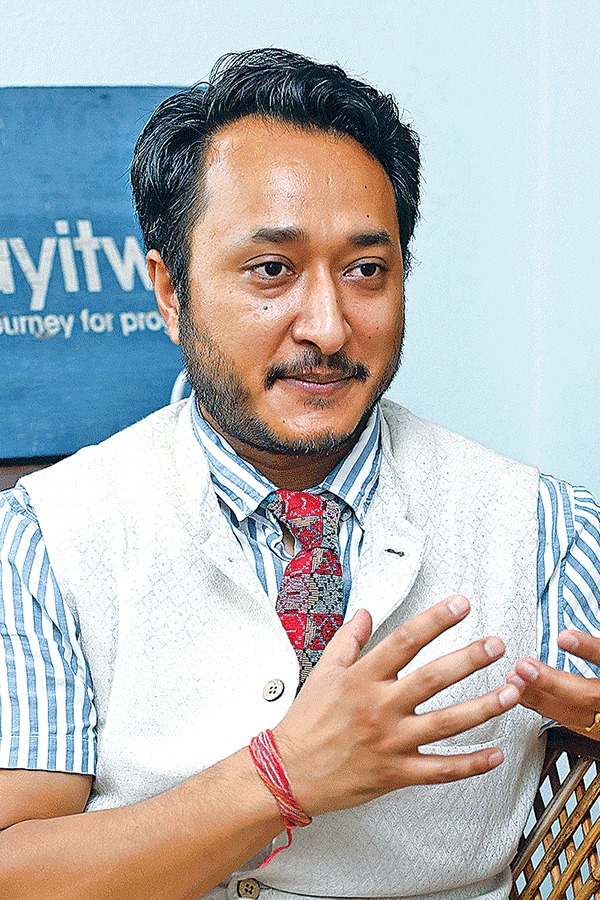
Dr Pukar Malla
Founder & Chairperson
Daayitwa Abhiyaan
Gen Z faces an acute shortage of employment opportunities and unless businesses address this head-on, both their growth and legitimacy will be questioned. Beyond the domestic market, businesses should proactively explore international markets, tapping into export opportunities and regional collaborations to fuel growth and create jobs. Equally critical is embracing diversity and inclusion as a business imperative. Young people from marginalised communities must see tangible pathways to participate in Nepal’s growth story. This requires not only fair hiring but also programmes that actively nurture underrepresented talent.
Nepal’s economy is reeling under an economic shock, intensified by the recent Gen Z movement that has spotlighted youth frustrations over corruption, exclusion, unemployment and disillusionment with current systems. Yet, within this turbulence lies an opportunity. If the business community and policymakers can respond decisively, they can transform this moment of crisis into a springboard for inclusive growth and economic renewal.
For the business community, the first priority must be job creation. Gen Z faces an acute shortage of employment opportunities and unless businesses address this head-on, both their growth and legitimacy will be questioned. Beyond the domestic market, businesses should proactively explore international markets, tapping into export opportunities and regional collaborations to fuel growth and create jobs. Equally critical is embracing diversity and inclusion as a business imperative. Young people from marginalised communities must see tangible pathways to participate in Nepal’s growth story. This requires not only fair hiring but also programmes that actively nurture underrepresented talent. Businesses should also forge stronger partnerships with universities, ensuring graduates emerge with the skills, creativity and entrepreneurial spirit demanded by the labour market.
At the same time, investing in CSR should go beyond token philanthropy. Strategic partnerships with civil society organisations can help businesses engage youth in inclusive growth while also building the trust and social branding so essential in winning Gen Z – who are not just employees but also a core client base.
For policymakers, the path forward demands a two-pronged focus: enabling opportunity and empowering voice. On one hand, fostering rural entrepreneurship can turn unemployment into enterprise by channelling the creativity and resilience of young people. On the other hand, improving the business environment through investment-friendly incentives and making Nepal tourism-friendly by ensuring security and robust branding will generate broader economic opportunities.
Beyond economics, however, lies the deeper issue: the cost of corruption. It is not only a moral failure but also an economic shock that erodes investor trust, drains public resources and blocks opportunities for youth. Businesses and policymakers alike must commit to raising Nepal to new heights of morality, where transparency, accountability and ethical leadership are non-negotiable.
The Gen Z movement is a wake-up call. If businesses and policymakers can act decisively – by creating jobs, fostering inclusion, empowering youth voices and upholding integrity – Nepal can transform uncertainty into a new wave of economic renewal powered by the dynamic demographic majority.

Prarthana Saakha
Co-founder, BIC Technology (Tigg)
It is time to empower young people to lead genuinely. We often say ‘age is just a number’, but now we must act on it, giving youth the space to lead enterprises and contribute to shaping the nation’s future. This shift is necessary for Nepali businesses to compete globally.
The recent Gen Z-led protests for anti-corruption and freedom of speech have sparked a wave of optimism for a better future for our country. While the outcome has been inspiring, the destruction of property, including homes and businesses, was deeply unfortunate and added to the challenges entrepreneurs already face.
Today, we are in a period of economic uncertainty that tests the resilience of entrepreneurs more than ever. Entrepreneurs are used to dealing with unpredictability but this moment requires us to focus on one key priority: stability. Surviving and holding on until conditions improve must be the first goal.
At the same time, businesses need to be more agile in operations and empathetic in their approach to customers and communities. Many businesses have carried on without acknowledging the current sentiment in the nation. This is a time to act with sensitivity, honouring the sacrifices of the young people who made this movement possible. Agility and empathy are essential for rebuilding trust and loyalty.
Another critical factor is the rise of Gen Z in the workforce. This generation is defined by technology, instant communication and a demand for transparency. Therefore, digital adoption is essential for growth and meaningful engagement. Businesses and the government must keep digital tools secure and reliable, as outages like the recent social media shutdown hurt companies, mostly those working with foreign clients.
Most importantly, it is time to empower young people to lead genuinely. We often say ‘age is just a number’, but now we must act on it, giving youth the space to lead enterprises and contribute to shaping the nation’s future. This shift is necessary for Nepali businesses to compete globally. The tech industry already shows how adaptable and globally minded young leaders can be and now it is time for others, too. I strongly believe that the vision and energy of young leaders will drive the next wave of entrepreneurship and innovation.

Karvika Thapa
Founder & CEO, Kimbu Tech
It is time to empower young people to lead genuinely. We often say ‘age is just a number’, but now we must act on it, giving youth the space to lead enterprises and contribute to shaping the nation’s future. This shift is necessary for Nepali businesses to compete globally. The tech industry already shows how adaptable and globally minded young leaders can be and now it is time for others, too. I strongly believe that the vision and energy of young leaders will drive the next wave of entrepreneurship and innovation.
The primary focus of industry leaders must be empowering the youth to participate in productive and value-adding economic processes. As Nepal has one of the youngest populations globally, it is essential that our youth focus on jobs, innovation, entrepreneurship. For this to happen, the private sector plays a crucial role in igniting, supporting, and contributing to the growth of these emerging technologies.
The private sector in the lead needs to view this moment as a call to action, to create platforms where young innovators can thrive as it is the second largest industry to export services.
The private sector, by investing in startups, building mentorship programmes, and providing access to funding can ignite a wave of homegrown enterprises that generate employment and stimulate the economy. Trusting young people with resources and decision-making power will unlock bold ideas and scalable solutions that traditional systems often overlook. Embracing calculated risk and allowing space for early failures will foster resilient, corruption-free systems that can scale beyond borders. The current revolution shows that young people are passionate and have immense love and dedication for this country. It is now time to channel this energy into opportunity. They are hungry and ready to work within the current system to shine and achieve their dreams here. Nepal has immense potential if we have the right leaders to guide them and, at the very least, walk alongside them to create something unique. We can showcase to the world a powerful combination of our culture, tradition and religion, fused with innovation and technology.
Policymakers must also play their part by reducing red tape, simplifying regulations, and incentivising entrepreneurship. Every young entrepreneur should feel confident that Nepal is the best place to build their future, surrounded by supportive leaders and a secure environment for growth to shine on the global stage. If we can combine the passion of our youth with the resources and guidance of the private sector, Nepal can not only recover from this crisis but emerge as a vibrant, competitive economy. The belief in our young generation’s creativity and potential will be the foundation of a prosperous and resilient future.

Rajan Kasajoo
President, CNIYEF Lumbini
We are unknowingly entering a ‘data war’, a silent battle that can be as destructive as traditional wars. Our personal data is exploited. Our mental health and well-being are challenged. Our capacity to grow sustainably is suppressed.
Data Security, Awareness, and Positive Growth are important points here.
1. Context & Concern: Research and lived experience show that platforms like TikTok and other social media are shaping how people express freedom of speech. Many content creators, influencers, celebrities or self-proclaimed ‘heroes’ use these spaces for fame or money – often without proper regard for data privacy, long-term growth or social responsibility.
This creates risks like data insecurity and hidden costs, misinformation without evidence or research, and short-term ego-driven content that does not contribute to real development.
2. The Real Issue: We are unknowingly entering a ‘data war’, a silent battle that can be as destructive as traditional wars. Our personal data is exploited. Our mental health and well-being are challenged. Our capacity to grow sustainably is suppressed.
3. The Needed Solution: We must build a data-safe social media culture through evidence-based awareness campaigns (local, national, and global), reviews, research, and education before content is accepted as truth, and security-first digital practices to protect privacy
4. Path Forward: Encourage natural living, health-focused activities and positive business practices that help people grow personally and professionally. Motivate society to use social media wisely, not just for temporary fame but for meaningful impact. Make awareness a daily practice, not just a discussion.
5. Call to Action: Let us change ourselves first, our habits, our awareness, our responsibility.
Then, collectively, we can start a movement for secure data, healthy living and positive growth. This is the path toward a successful and meaningful journey of well-being. The business community and policymakers must prioritise resilience, adaptability and ethical governance. By fostering innovation, safeguarding data, ensuring transparency and empowering youth participation, they can transform uncertainty into opportunity. The Gen Z revolution demands inclusive growth, trust-building and sustainable policies to secure long-term stability and prosperity.

Ajit Bikram Shah
Founding Chairperson, American Chamber of Commerce
The cost of corruption is measured not only in money lost but also in broken trust and missed opportunities. I believe Nepal can turn today’s crisis into a powerful catalyst for growth by uniting around reforms, transparency and shared responsibility. With courage and collaboration, we can rebuild an economy that is resilient, fair and filled with hope, making Nepal a model of renewal for the entire region.
The recent nationwide protests have reminded us how deeply corruption erodes public trust and weakens the foundations of our economy. The economic shock we face today is not only about physical damages but the result of years of systemic corruption, mismanagement and lack of accountability. Corruption diverts resources from productive sectors, discourages investment, undermines fair competition and limits the state’s ability to deliver essential services.
This moment must be seen as an inflection point, a chance to rebuild Nepal with integrity and shared purpose. The government must take visible and decisive actions by strengthening institutions, enforcing the rule of law and adopting e-governance systems that minimise human discretion. Simplifying regulations, fast-tracking reforms and ensuring fair competition will create a predictable environment that attracts both domestic and foreign investment.
The private sector must rise as an active partner in this transformation. Businesses should embrace ethical practices, transparency and compliance while co-creating solutions with the government. Industries like IT, ITES, and Outsourcing can take the lead by developing digital platforms that reduce leakages, enhance efficiency and drive innovation. These sectors also hold the potential to generate thousands of jobs, create export-ready services and showcase Nepal as a global hub for digital talent. The private sector - by investing in skills development, startups and entrepreneurship - can transform frustration into opportunity and harness the energy of our youth.
Together, both the public and private sectors must focus on empowering young people. This generation has shown its courage to demand change; now, it must be given the tools to build a better future through education, innovation and inclusion. The cost of corruption is measured not only in money lost but also in broken trust and missed opportunities. I believe Nepal can turn today’s crisis into a powerful catalyst for growth by uniting around reforms, transparency and shared responsibility. With courage and collaboration, we can rebuild an economy that is resilient, fair and filled with hope, making Nepal a model of renewal for the entire region.
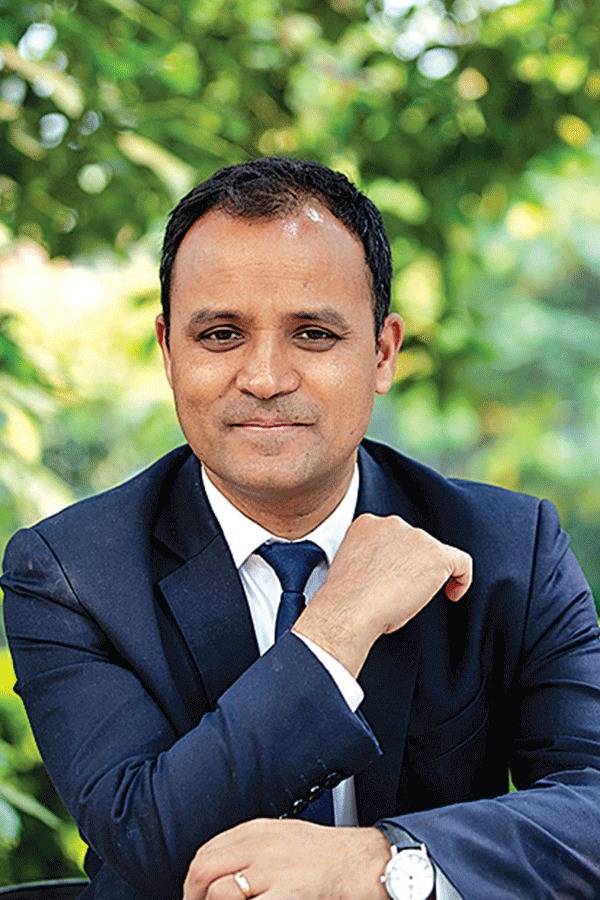
Khem Lakai
Chairman, PATA Nepal Chapter
The challenges ahead are immense. But we now have a conscious generation ready to replace dysfunction with progress. We should embrace this shift with open arms. The way forward is clear: reform education from basic to university level, prioritise world-class technical and vocational training, expand apprenticeships, and equip universities as hubs of innovation and creativity. At the same time, government must create an enabling environment for private sector growth.
The September 8 Gen Z protest shook Nepal to its core. Tourism, our lifeline was the first to be hit, while the destruction of businesses, including the tragic blaze at Hilton and several other noted hotels, and businesses sent shock-waves far beyond our borders. This was not just an economic setback but a severe blow to our national confidence and hard-earned reputation.
Yet, crisis also brings opportunity. The sacrifice of 72 lives must not be in vain. It should mark a turning point where Nepal chooses resilience over despair. Gen Z’s aspirations are clear: efficient government, competent leadership, transparency, a corruption-free nation and merit-based opportunities to thrive.
Nepal today needs leaders beyond political ideology; leaders who inspire young people to trust, hope, do and expect more, while balancing rights with responsibilities. Bureaucracy and ministers alike must modernise governance: making the digital shift toward transparent, real-time and efficient service delivery. No nation should force its citizens to wait more than four years for a digital driving licence. Past governments should feel responsible of such mediocrity, which is only the tip of the iceberg and why this outburst was inevitable.
The challenges ahead are immense. But we now have a conscious generation ready to replace dysfunction with progress. We should embrace this shift with open arms. The way forward is clear: reform education from basic to university level, prioritise world-class technical and vocational training, expand apprenticeships, and equip universities as hubs of innovation and creativity. At the same time, government must create an enabling environment for private sector growth.
Wealth creation should be celebrated, not stigmatised. Above all, businesses must feel secure; restoring their confidence will restore Nepal’s economy. This is Nepal’s defining moment. If we act with courage, we can honour the sacrifices made, rebuild trust and set the nation on a path of renewal and prosperity.
Unlike past crises, if we uphold the rule of law, ensure efficiency and communicate effectively, Nepal can emerge from this moment faster than anyone imagines. But the world is watching closely, how we deal with lawlessness, culture of impunity, how clearly we distinguish between crime and peaceful protest, and how firmly we preserve democratic values. Our collective achievement of the past must be protected. The alternative to democracy is not retreat; it is only a more functional, transparent and accountable democracy. There is no going back; only marching forward.

CA Jitendra B Rajbhandary
Senior Partner, JB Rajbhandary & DiBins
The government needs to encourage online systems for most of its services so that physical appearance and interactions between government employees and business people are mitigated to the extent possible. An online system will ensure that both the parties have little space to play around in complying with the standard procedures and documents. Strengthening anti-corruption institutions, ensuring transparency in public spending, and promoting digital governance can significantly restrict the opportunities for misuse of public funds. Swift legal action against high-level offenders is required to restore public trust.
Nepal’s political landscape has undergone significant transformation over the past 50 years, shifting through several distinct systems: from the absolute monarchy of the Panchayat regime to the establishment of a constitutional monarchy under a multi-party democracy. This evolution culminated in the abolition of the constitutional monarchy and its replacement with a republican structure featuring a ceremonial president and a prime minister selected by the parliament.
During this period, the Nepali economy has seen many ups and downs. Frequent changes in the country’s economic policies have led foreign investors to a cautious approach while Nepali entrepreneurs never felt comfortable in making further investments in Nepal. This has been the biggest setback to the investment environment though every successive government has been vocal on proclaiming investor friendly economic environment and laws.
Bureaucratic delays/red-tapism and misuse of public funds have been draining the country’s resources, which has become a barrier in economic stability and growth. Another deterrent factor is frequent changes in the country’s economic policies, which severely undermines investor confidence and development projects. This is one of the reasons for the lack of foreign investments. Scarce investment in productive sectors is a critical issue, contributing to high unemployment and ultimately undermining economic growth. Majority of youth thus are forced to seek employment abroad. This became visible during the recent economic shocks Nepal went through.
The recent movement in Nepal stems from a combination of multifaceted issues and the frustrations of the youth. Key drivers include demands for institutional efficiency, greater involvement of youth in the country’s decision-making process, the need for proper use of public funds to generate employment, and widespread concerns over corruption.
In order to encourage a positive business environment in Nepal, economic reforms that simplify bureaucratic procedures, investor friendly industrial policies, repatriation issues, business friendly tax laws etc. will encourage investments. By prioritising merit-based appointments and discouraging political interference in bureaucratic functions, Nepal can enhance institutional efficiency. A clean and transparent system will attract investment, improve project delivery and cushion the economy against future shocks.
The government needs to encourage online systems for most of its services so that physical appearance and interactions between government employees and business people are mitigated to the extent possible. An online system will ensure that both the parties have little space to play around in complying with the standard procedures and documents.
Strengthening anti-corruption institutions, ensuring transparency in public spending, and promoting digital governance can significantly restrict the opportunities for misuse of public funds. Swift legal action against high-level offenders is required to restore public trust.
A positive impact of economic environment in Nepal can only be achieved through consistent reform, accountability and citizen participation. This will help the country to unlock its economic potential and secure a more resilient future.
However, decisive steps are required to achieve the above. Initiatives taken by the interim government do show positive signs for a better Nepal.
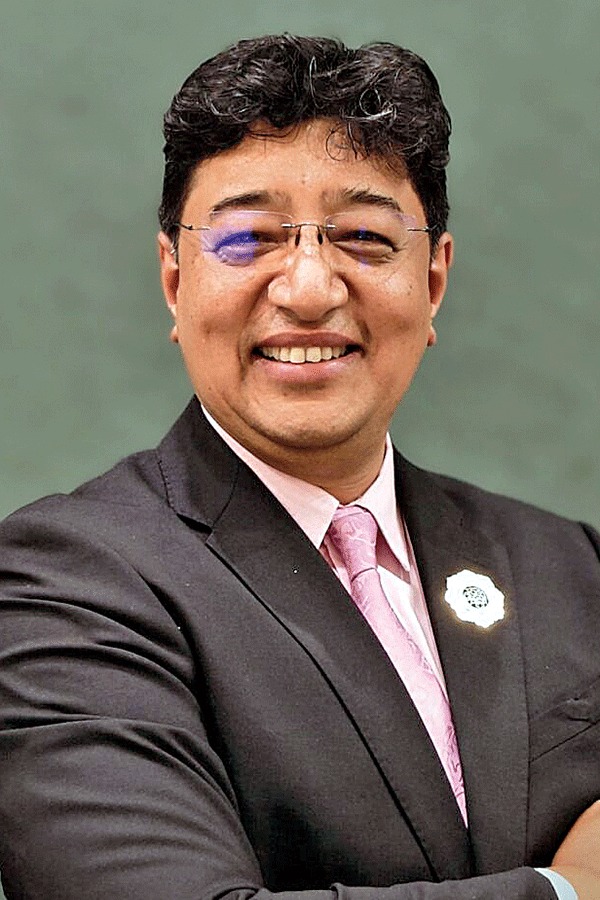
Suman Shakya
Founder, Tangent Waves
For entrepreneurs, corruption is not an abstract. It is a tax on ideas and a fine on honesty. Red tape and archaic laws then add friction to every step, draining money, dignity and hope. Every small humiliation, delay and rewarding connection over competence nudge bright founders and entrepreneurs towards foreign jobs. The antidote is not anti-regulation, it is clear, fast, digital solutions and services that treat citizens like customers.
To begin, we mourn. More than 70 Nepalis, many of them young, lost their lives in the nationwide anti-corruption protest and countless injured on September 8 and 9. A prime minister resigned and an interim government, thankfully, took charge. The grief is real, the anger justified, livelihood shaken, confidence punctured and the economic shock undeniable.
For entrepreneurs, corruption is not an abstract. It is a tax on ideas and a fine on honesty. Red tape and archaic laws then add friction to every step, draining money, dignity and hope. Every small humiliation, delay and rewarding connection over competence nudge bright founders and entrepreneurs towards foreign jobs. The antidote is not anti-regulation, it is clear, fast, digital solutions and services that treat citizens like customers.
First, immediate relief to stop the bleeding. Pay money owed to entrepreneurs and businesses. Extend tax and compliance deadlines where activities were disrupted. Open a temporary credit-guarantee window so banks can roll working-capital lines without fresh collateral. Launch a green lane to address insurance, exports and others. Quick, visible fixes buy time and preserve jobs.
Second, reboot ease of doing business with three promises of speed, simplicity and certainty. Make the ‘one-window’ real, not rhetorical. A single business ID that completes registration, tax, customs, bank account, permissions, licences and social security, etc. online based on sector-wise checklist within a timeframe. If the state misses a deadline, approvals are deemed granted and fees automatically refunded. Punish delays.
Third, cut through the jungle of rules. Launch regulatory guillotine to retire outdated clauses across industry, company, tax, municipal, and ward bylaws. Encourage innovation and foreign direct investments. Permit safe experimentation through sandboxes in hardware, information communication technology and artificial intelligence for agriculture, education, health, finance, hospitality and others. Relax the rules with strict monitoring.
Finally, make transparency the norm. E-procurement for all agencies, open contracting with beneficial ownership, asset declaration by all officials (in the government and stakeholders), and weekly publication of work awarded, progress and consequences of not meeting deadlines. The interim government can anchor this reset and earn legitimacy through results.
Entrepreneurs do not need favours. They need fairness and speed. If ruthless simplification can be paired with radical transparency, Nepal can convert today’s shock into tomorrow’s momentum. This will prompt the young and smart to stay back, attract value aligned capital, and prove that trust, once broken, can be rebuilt through better rules that work.


